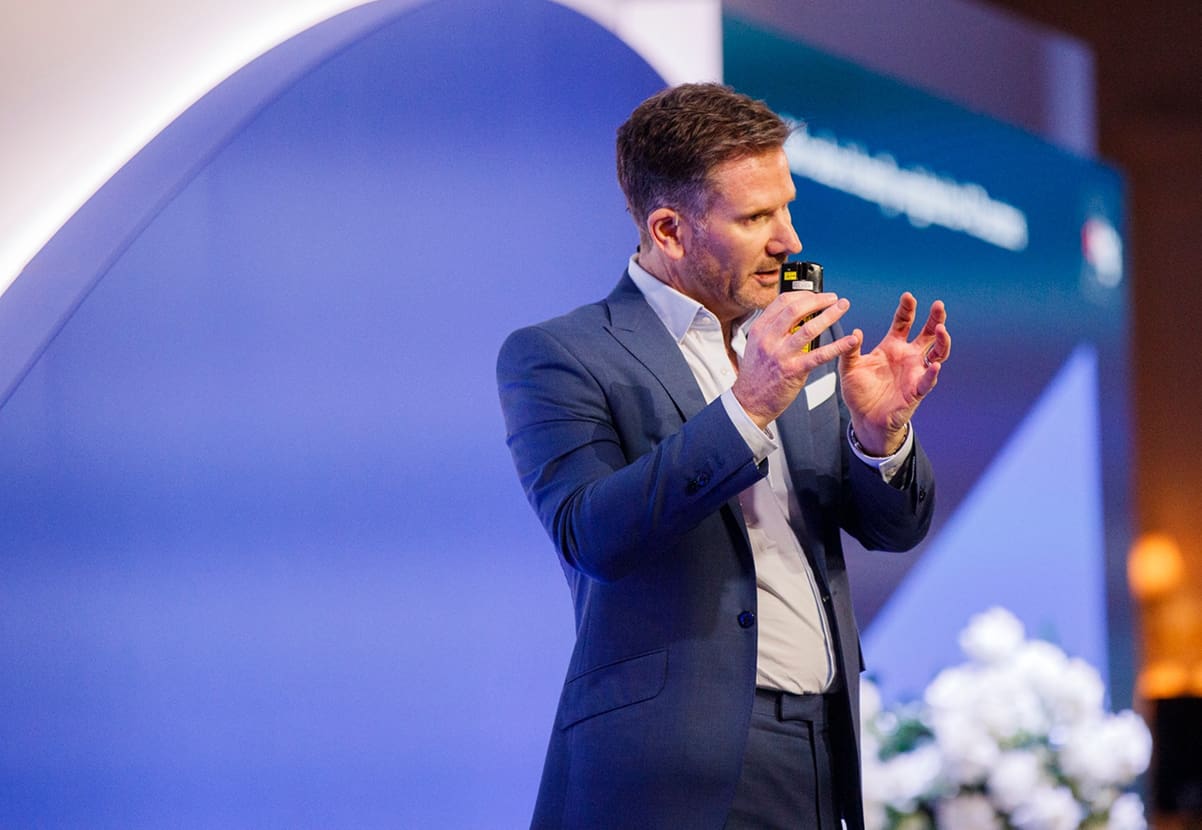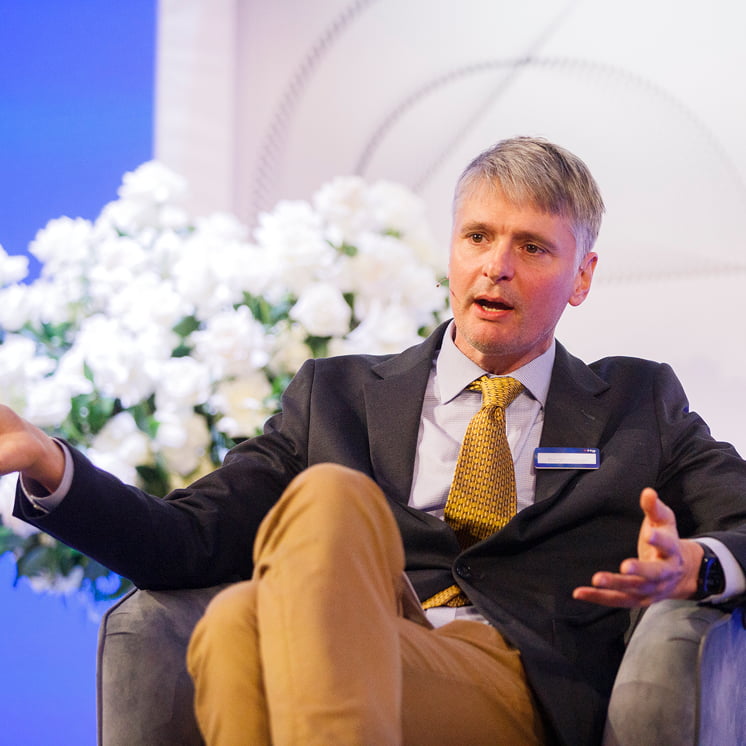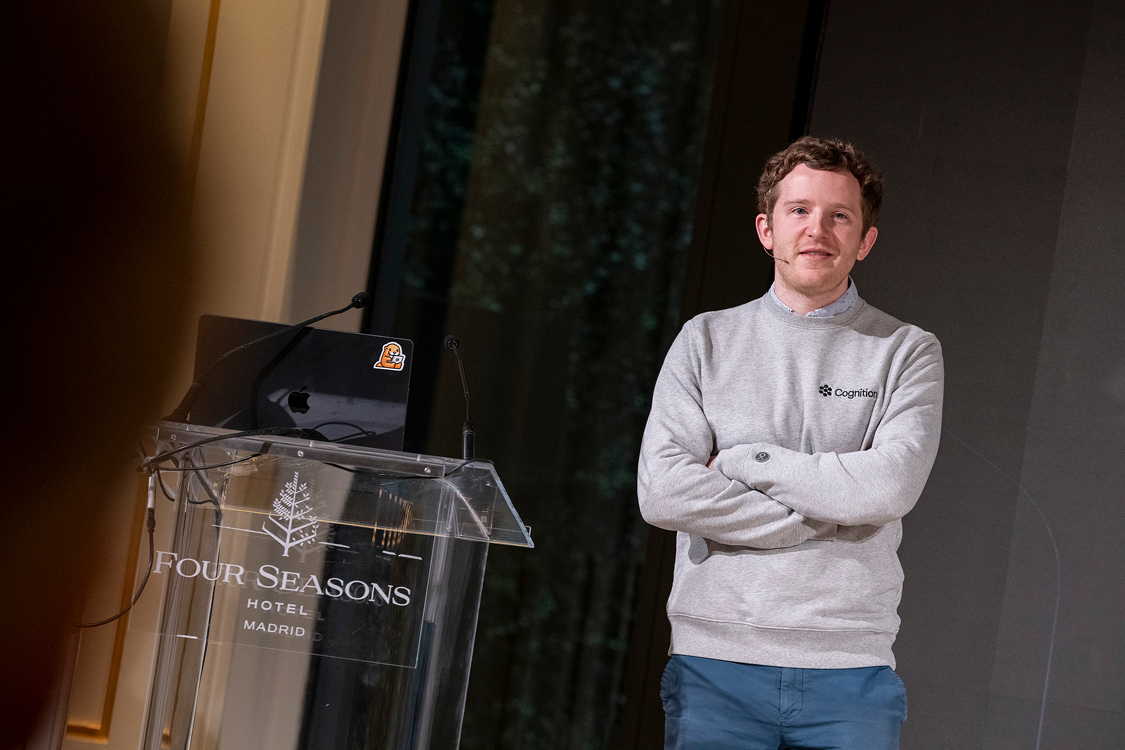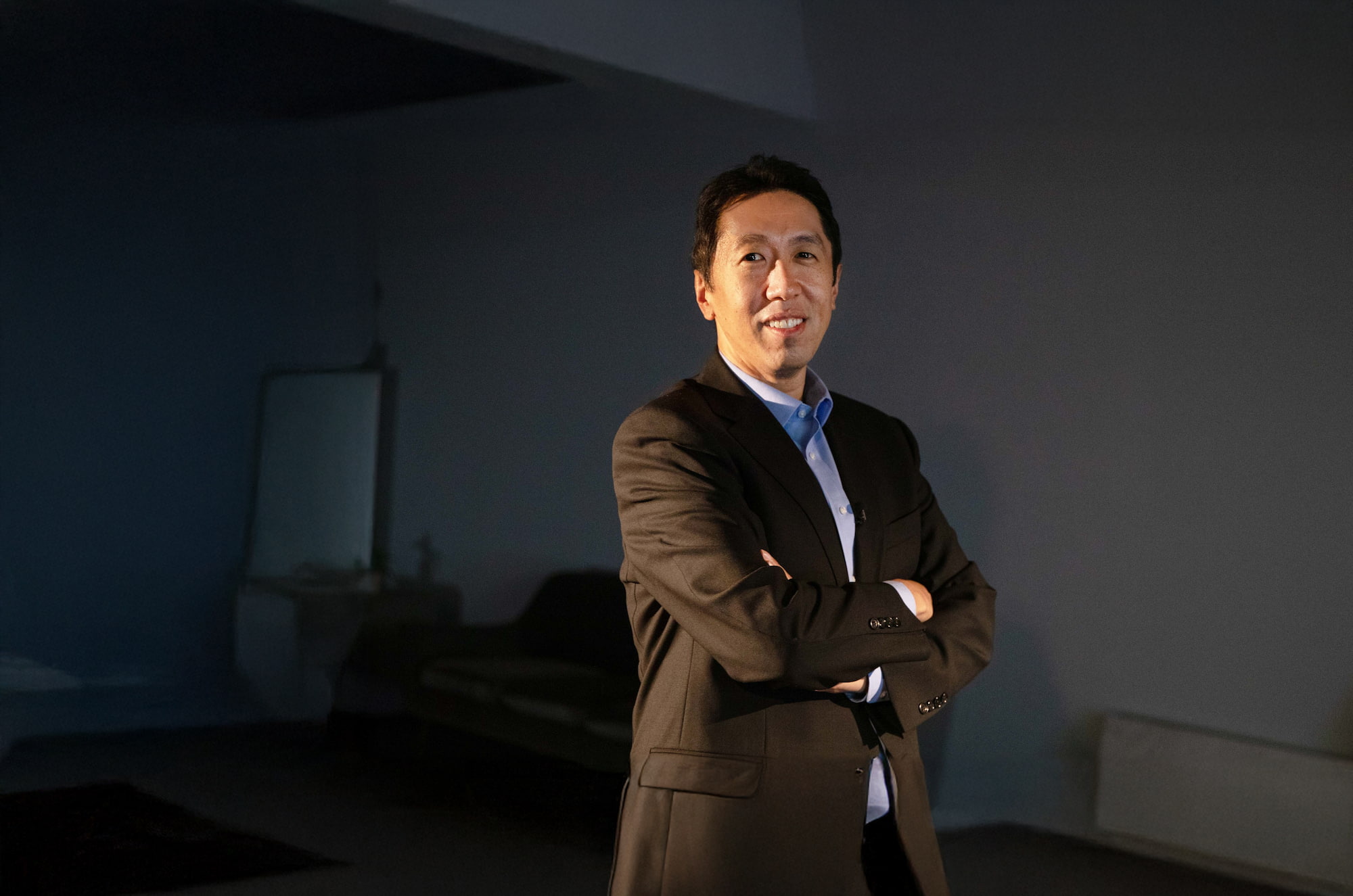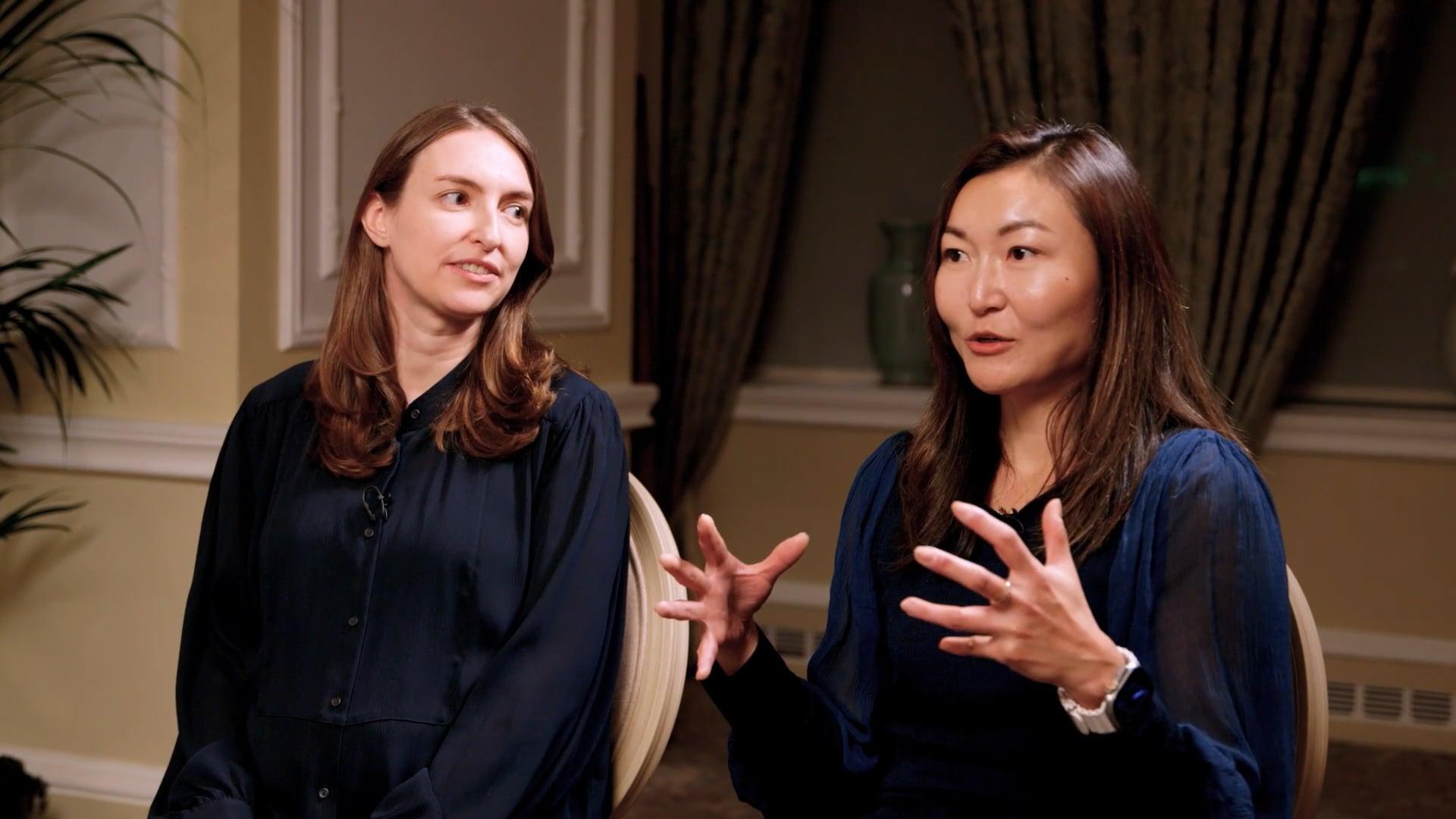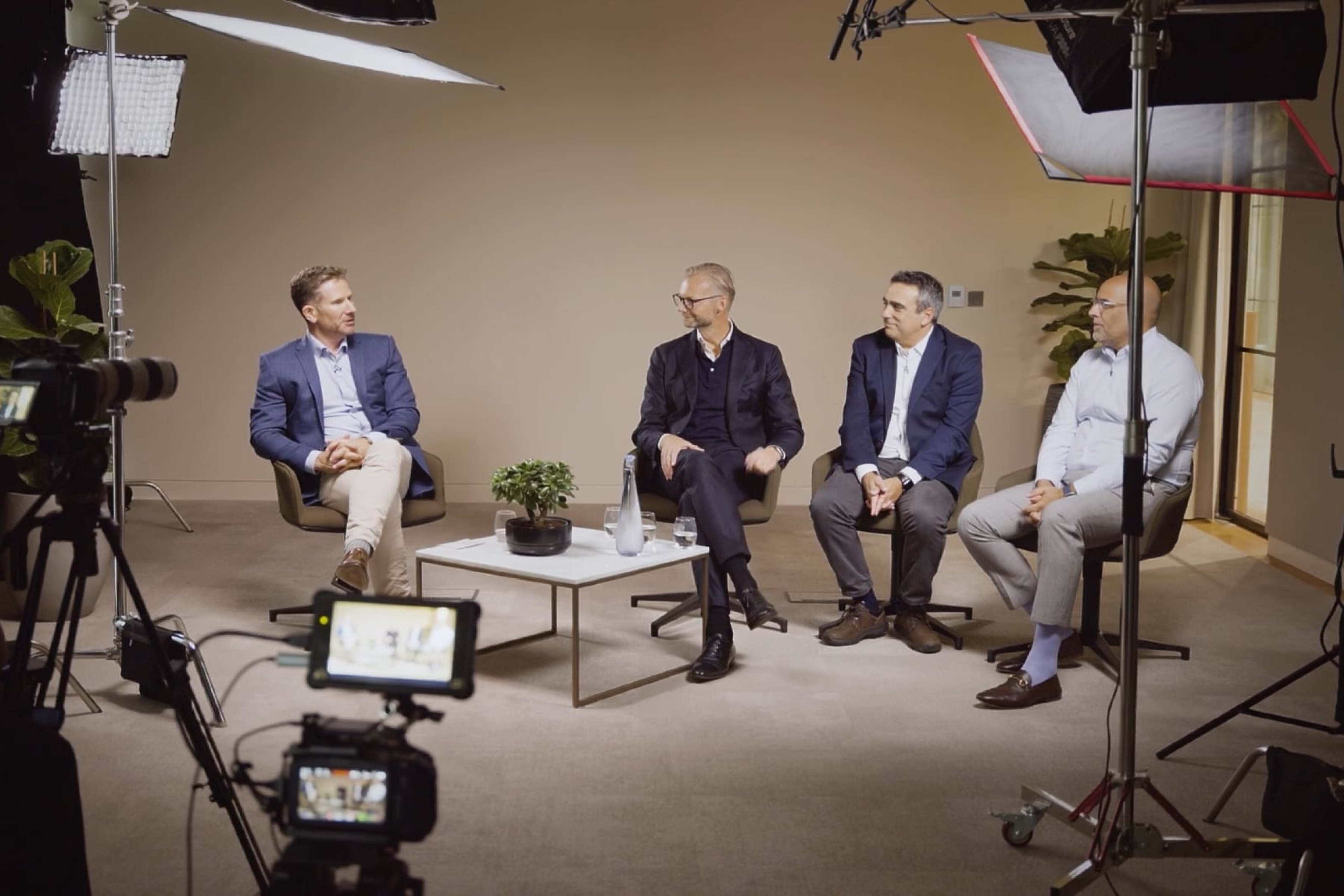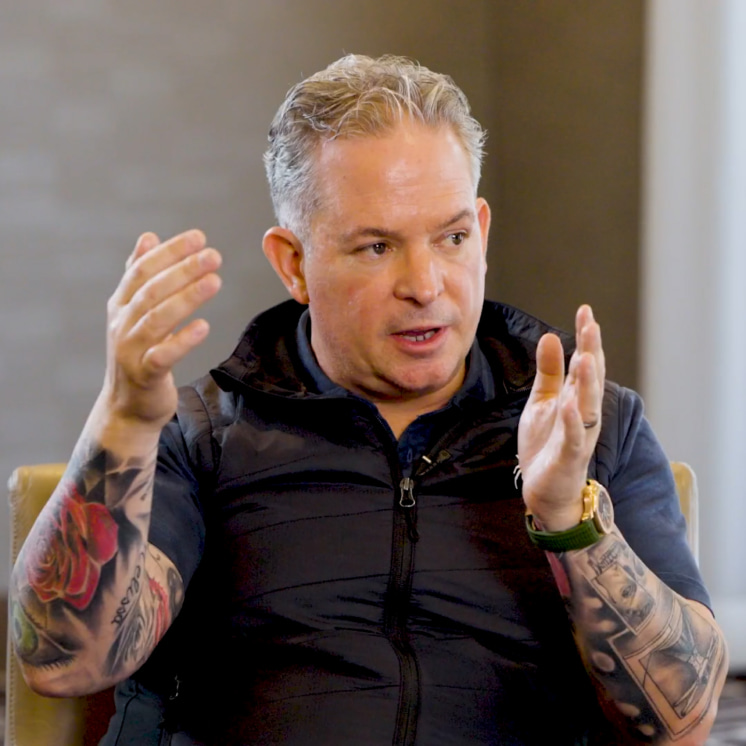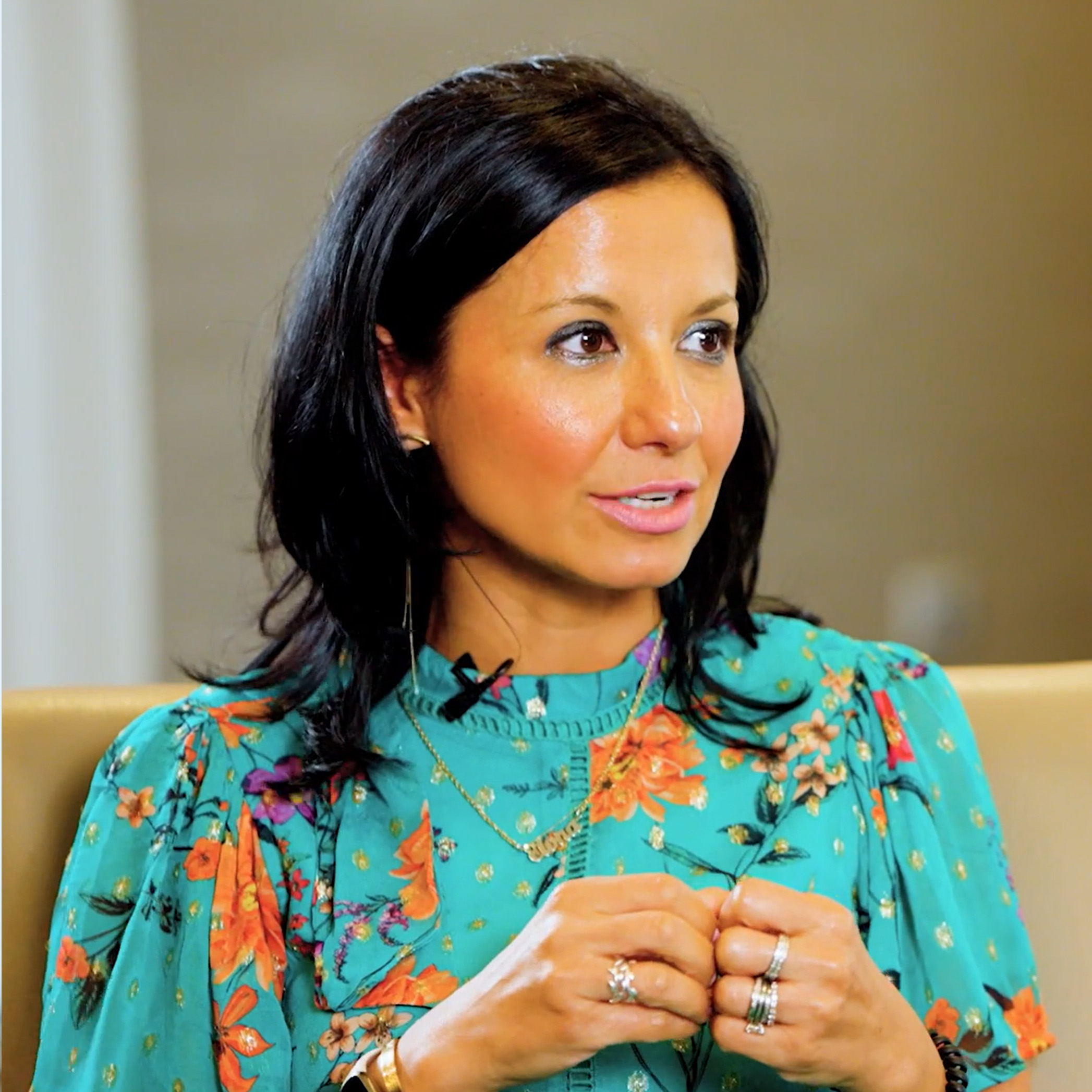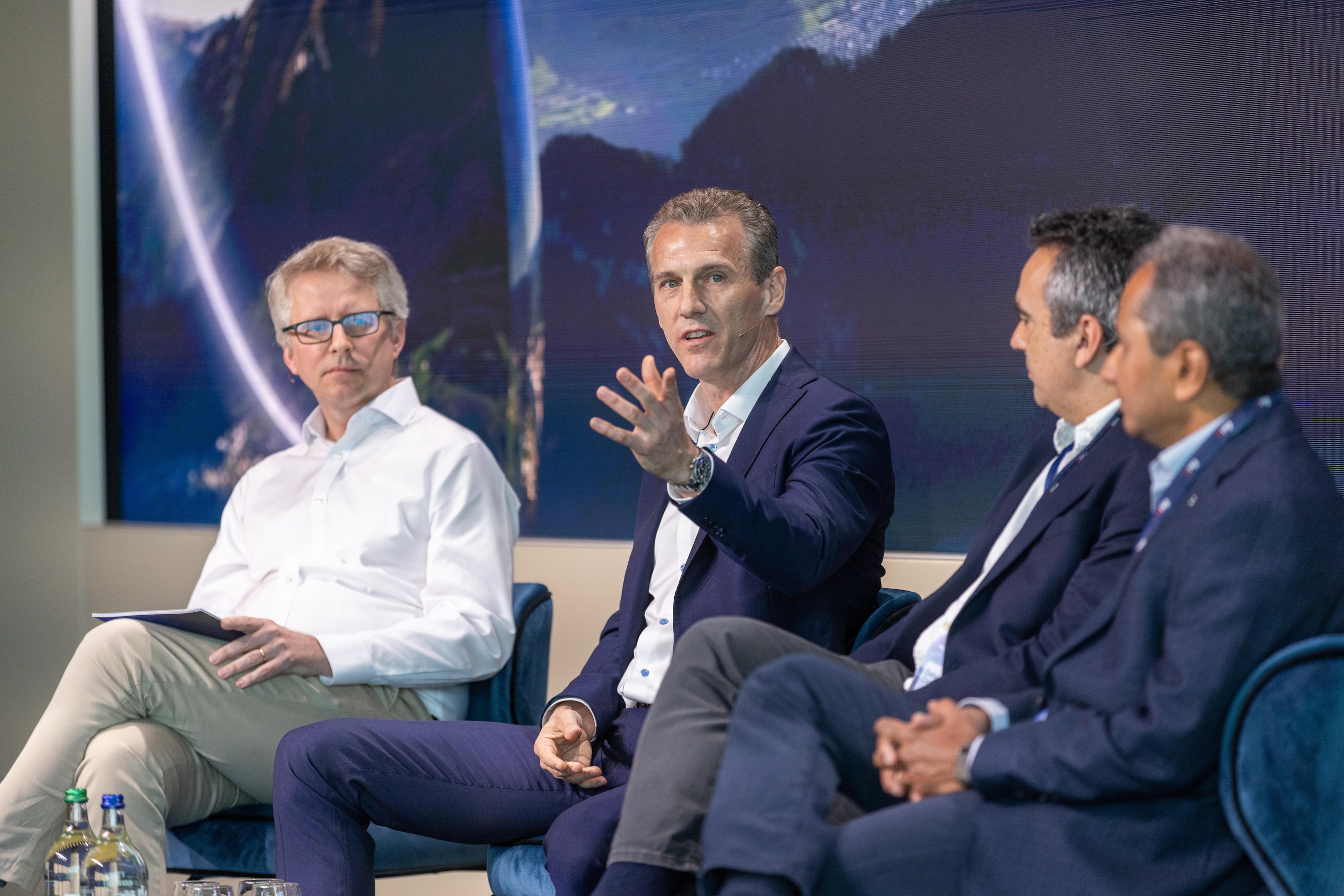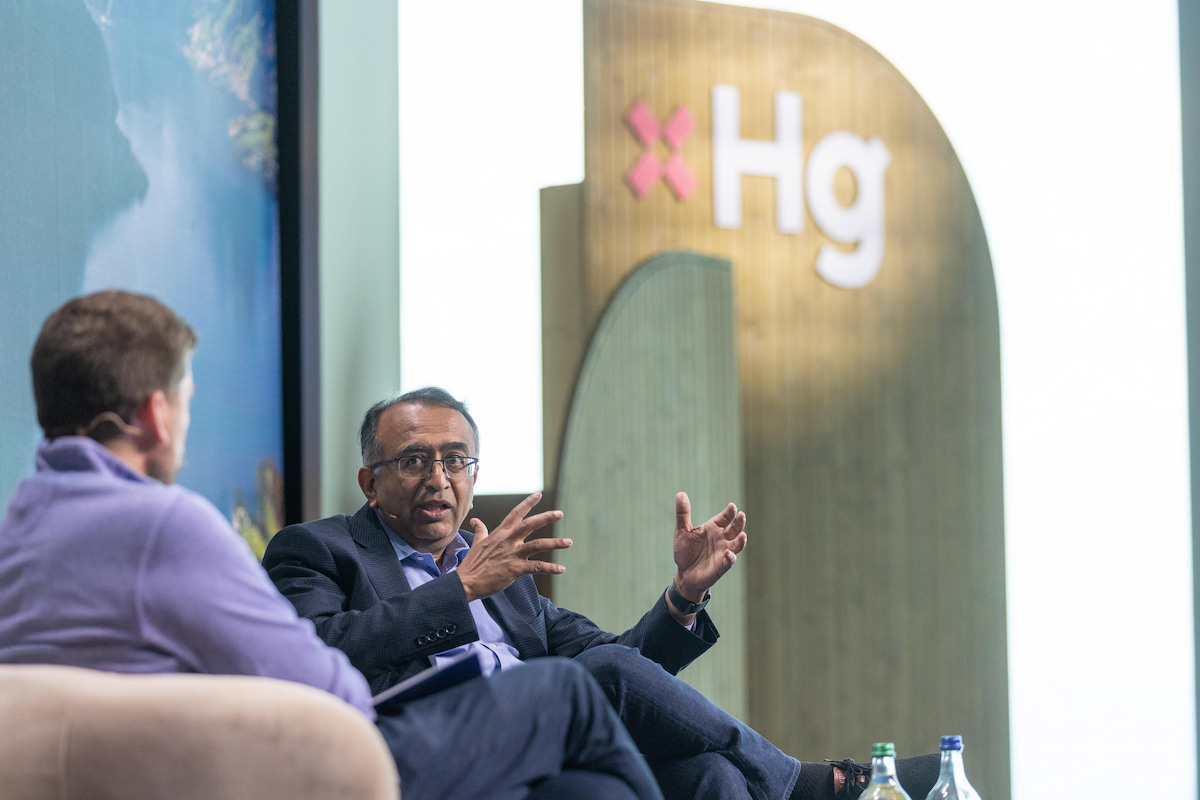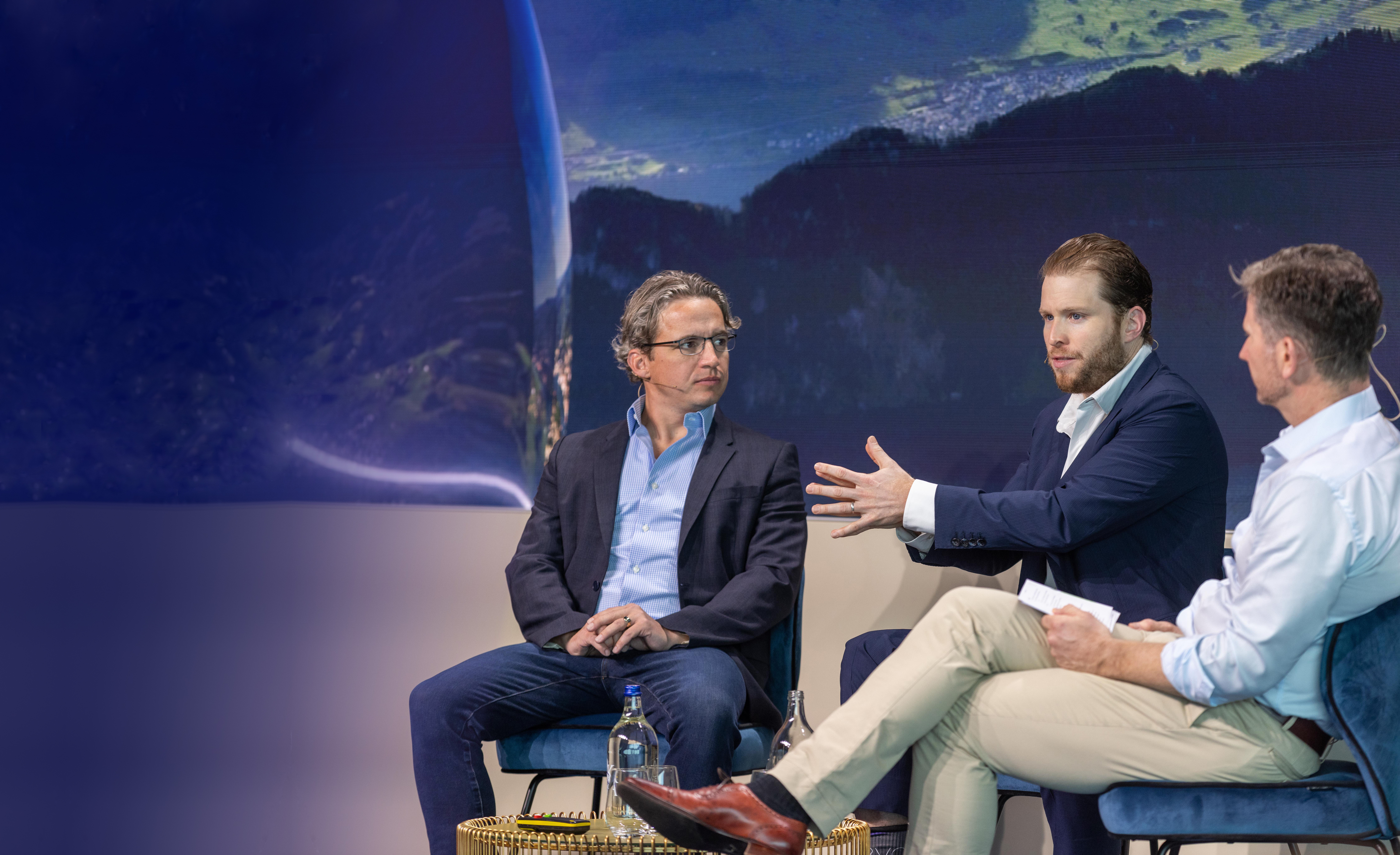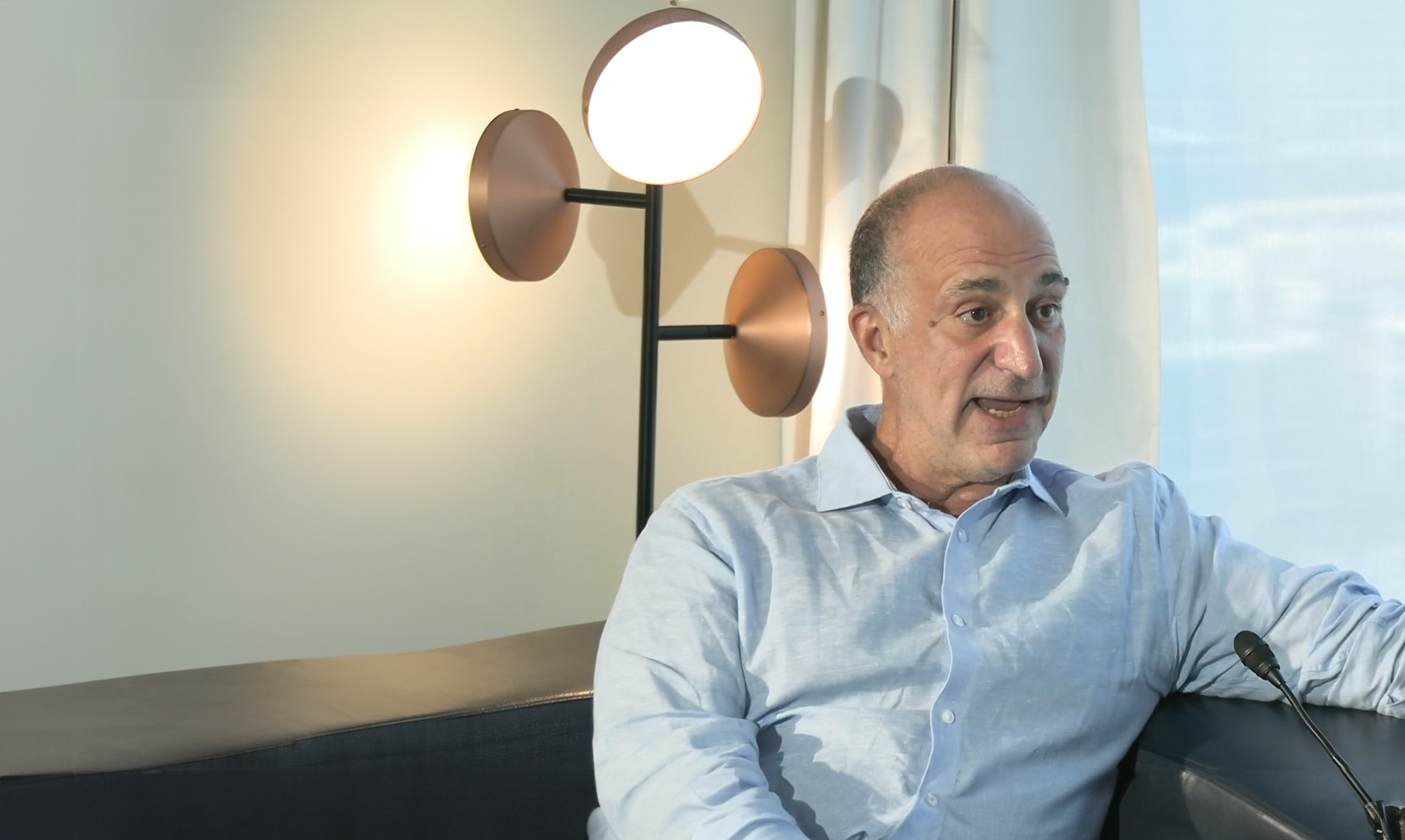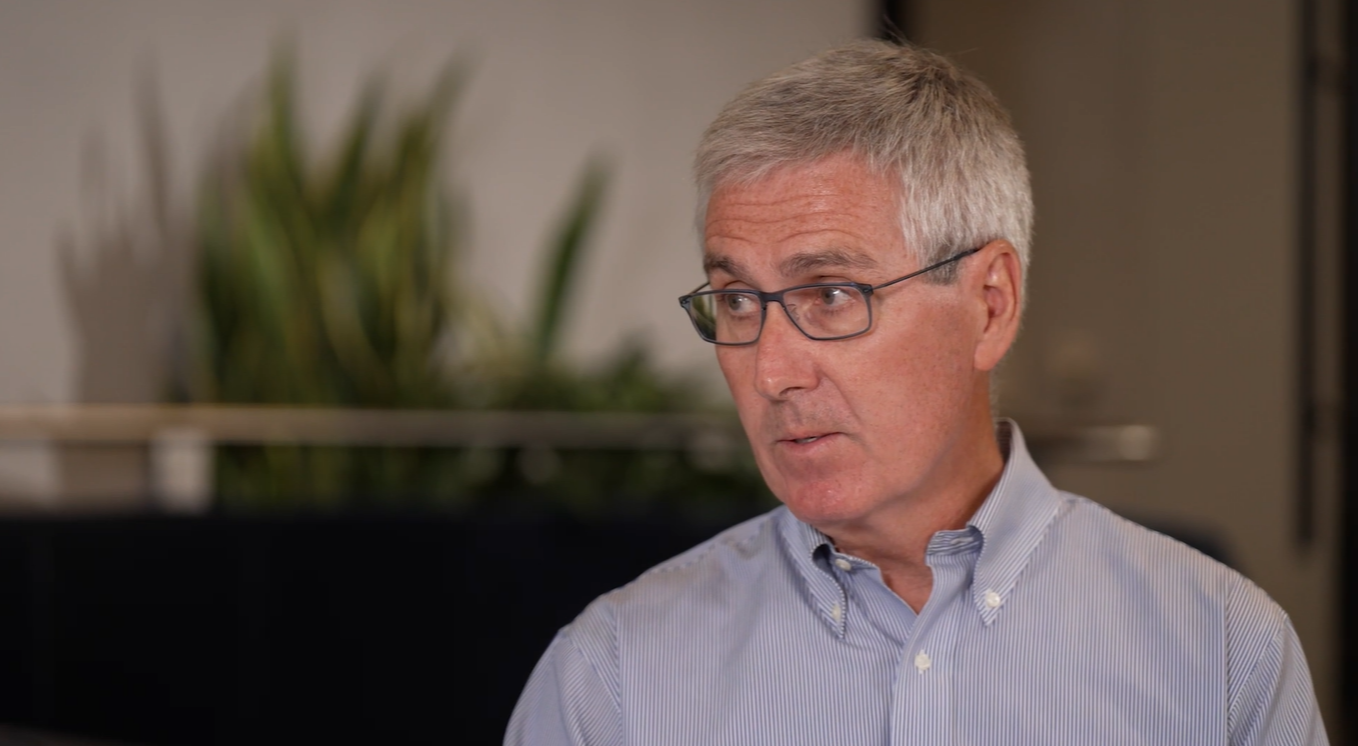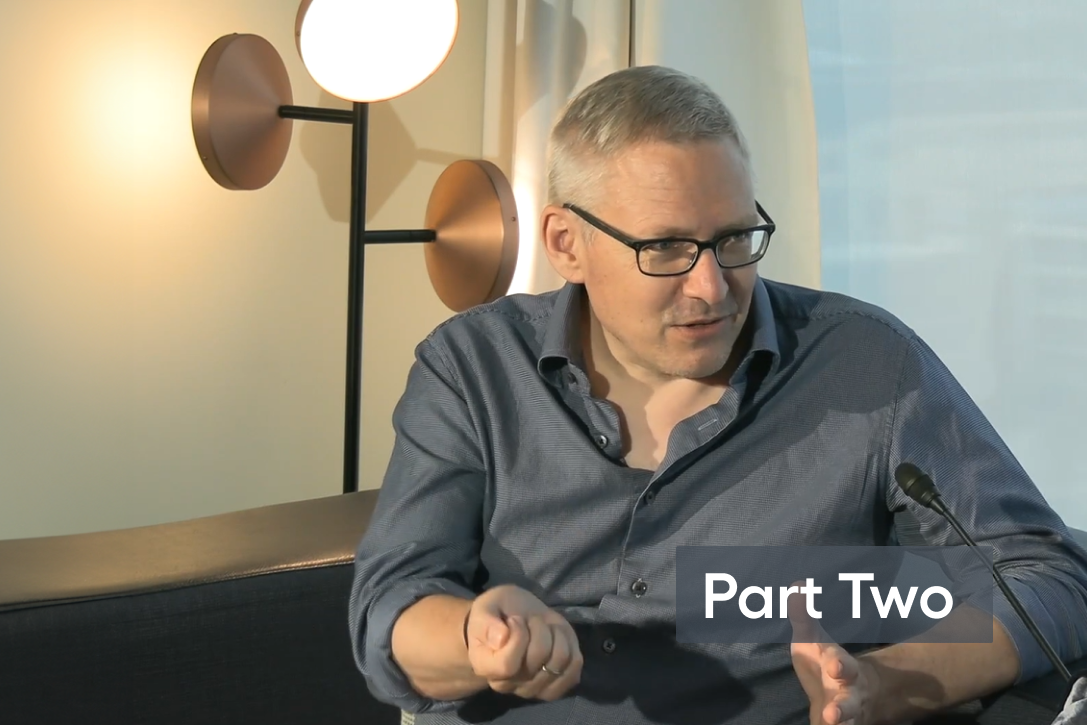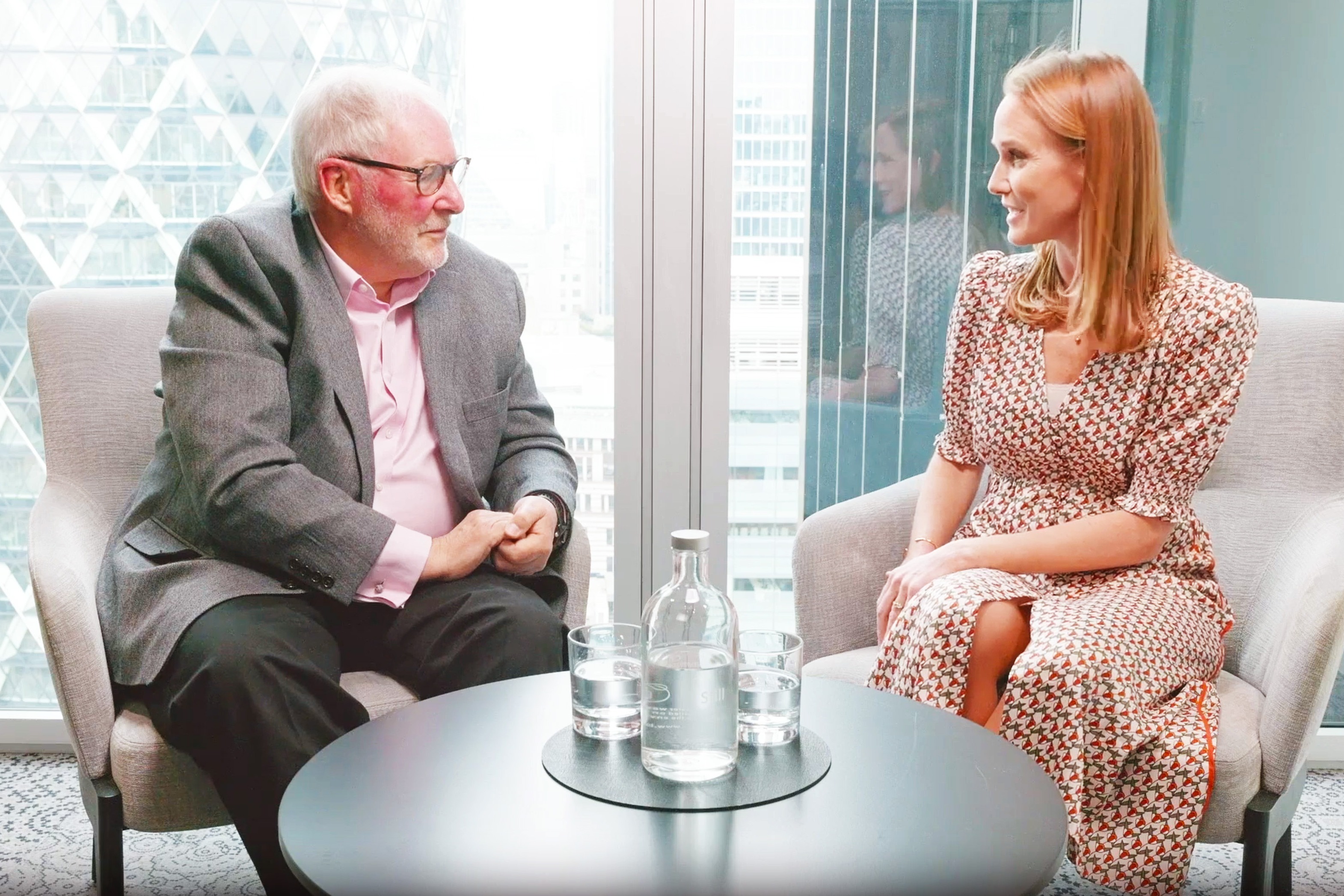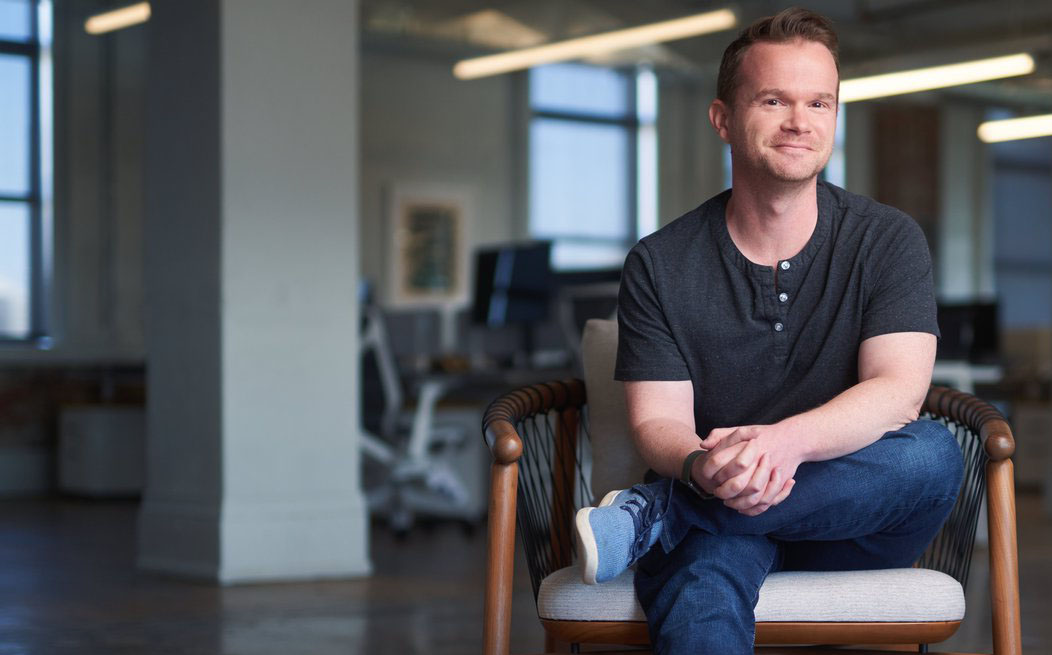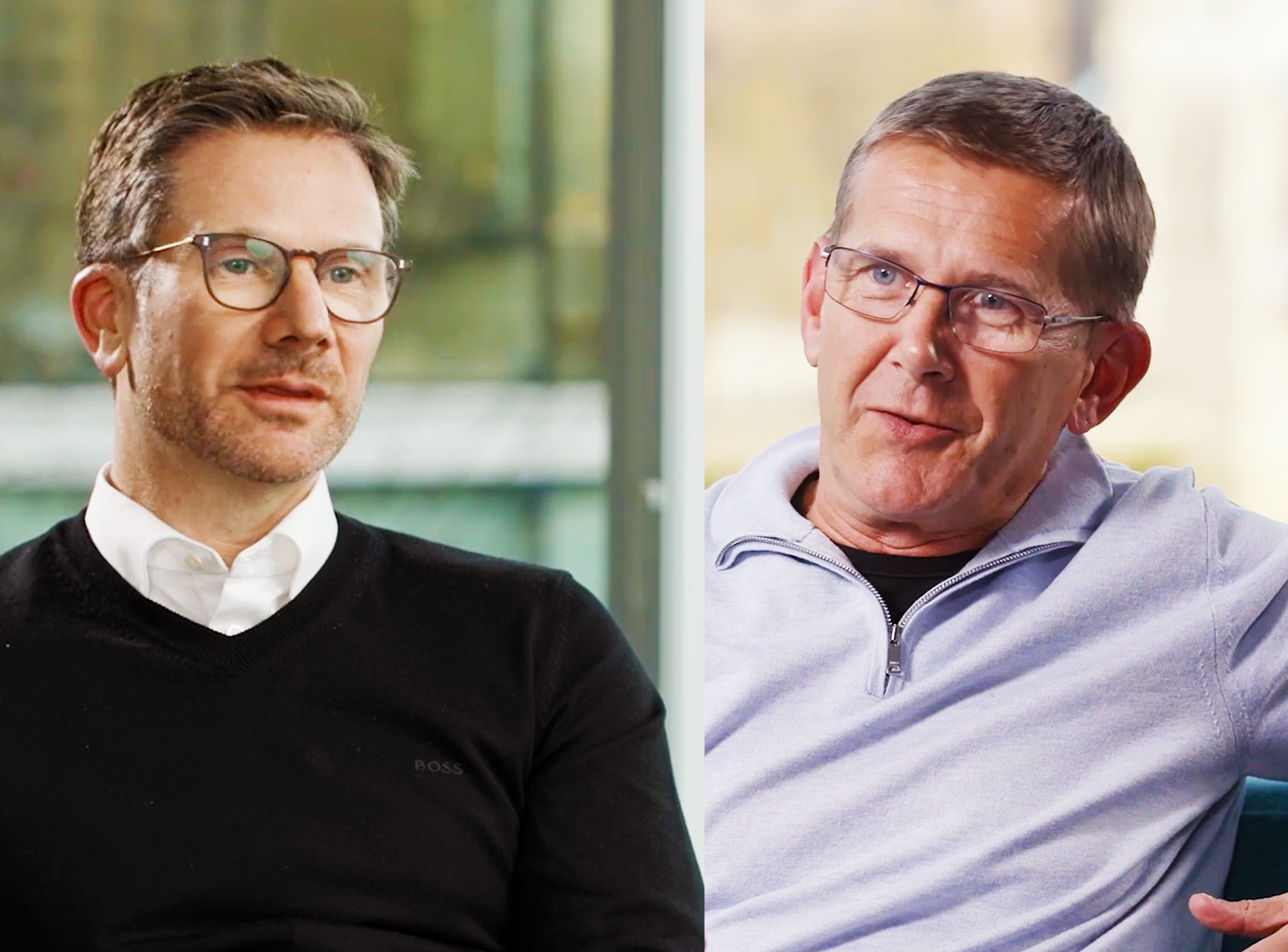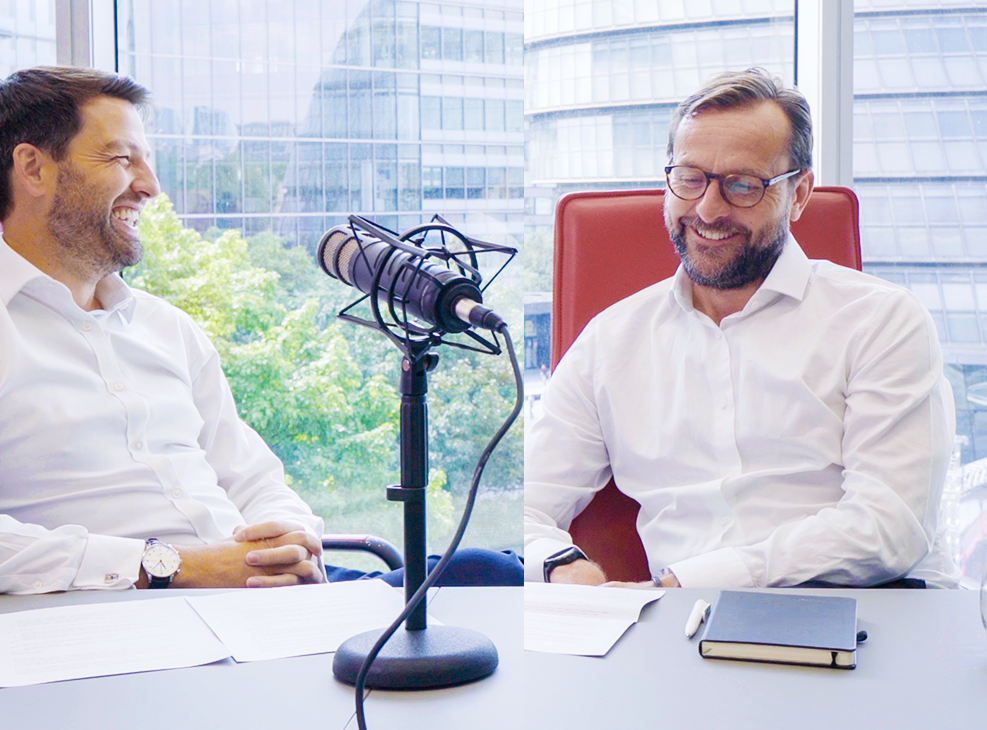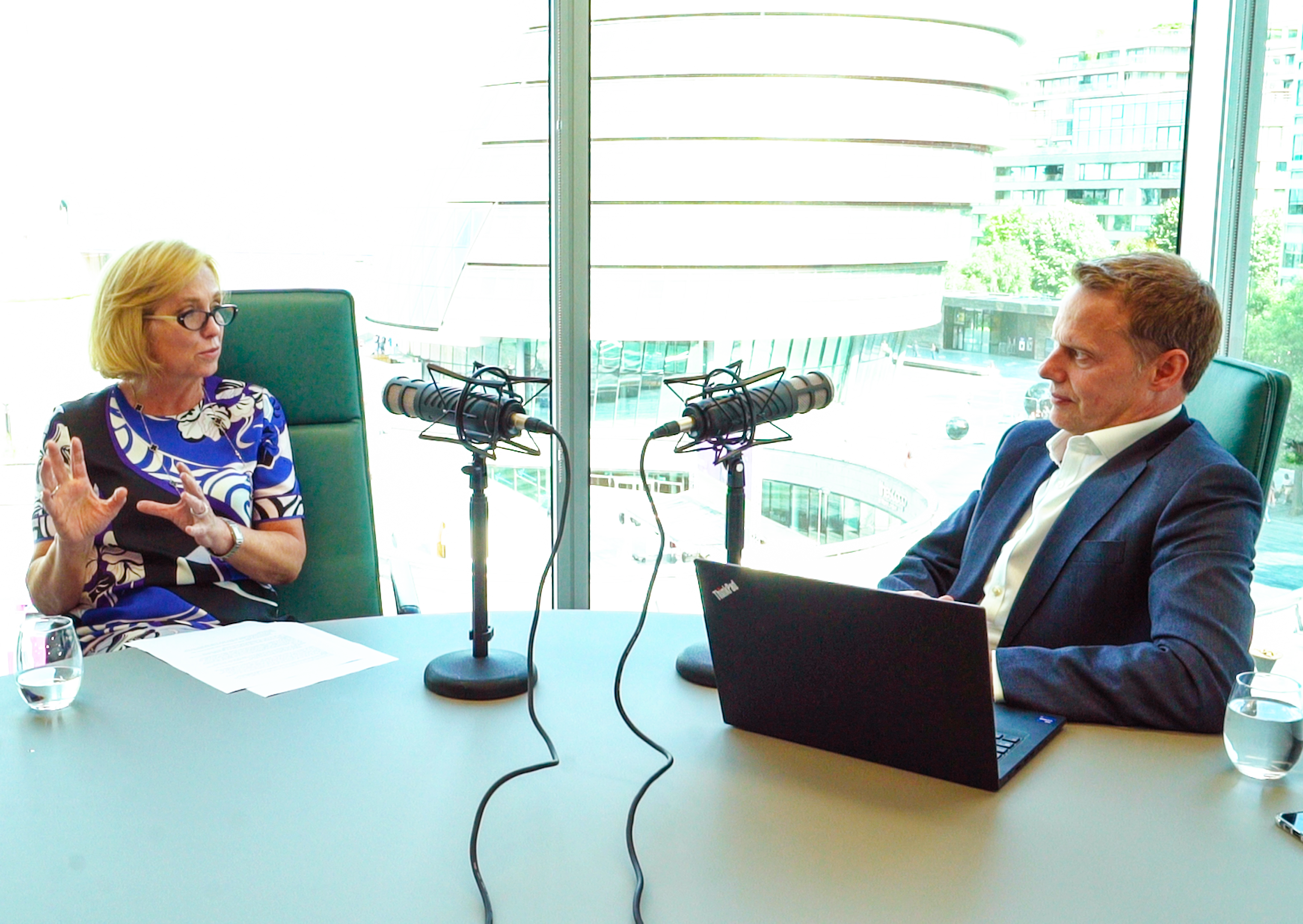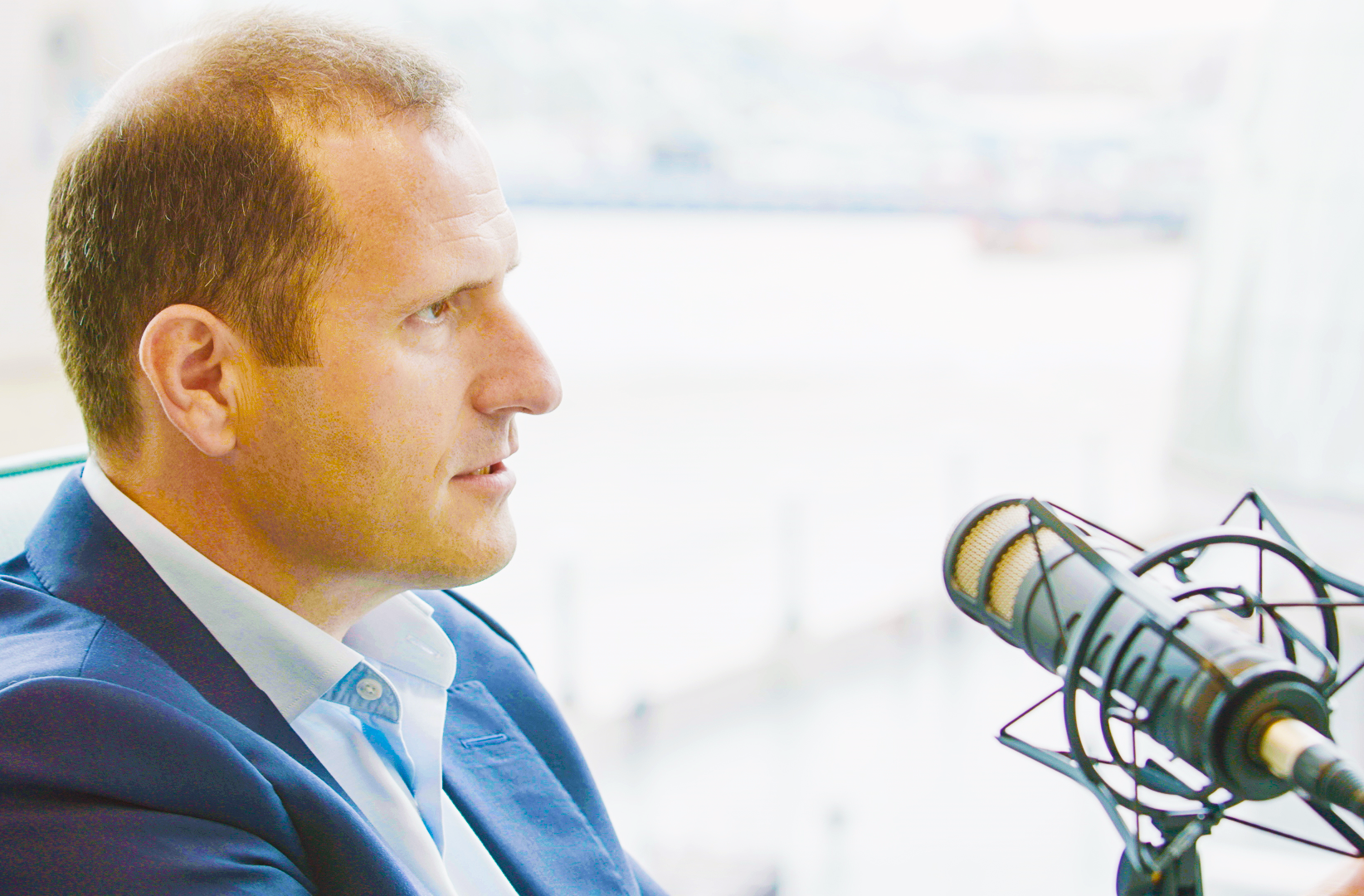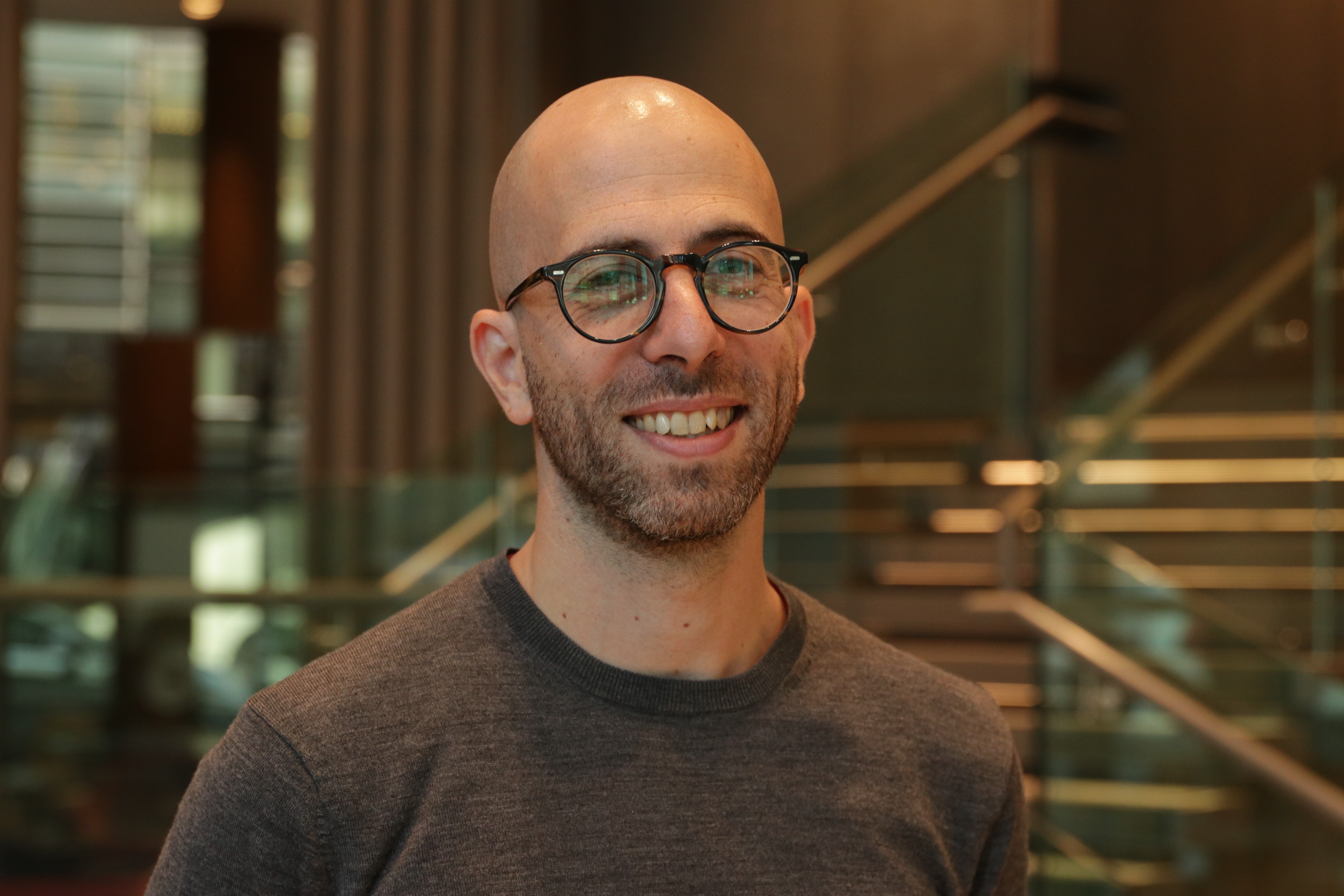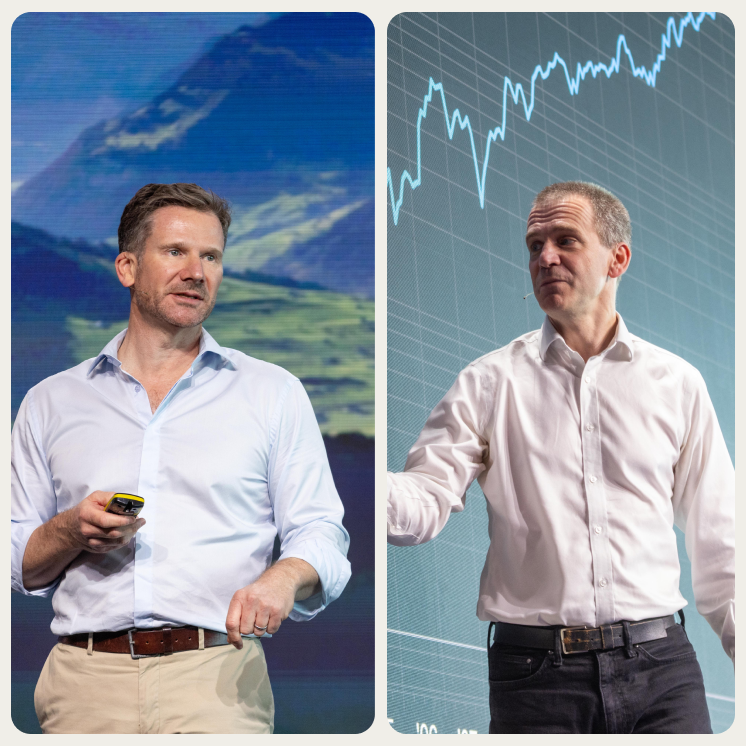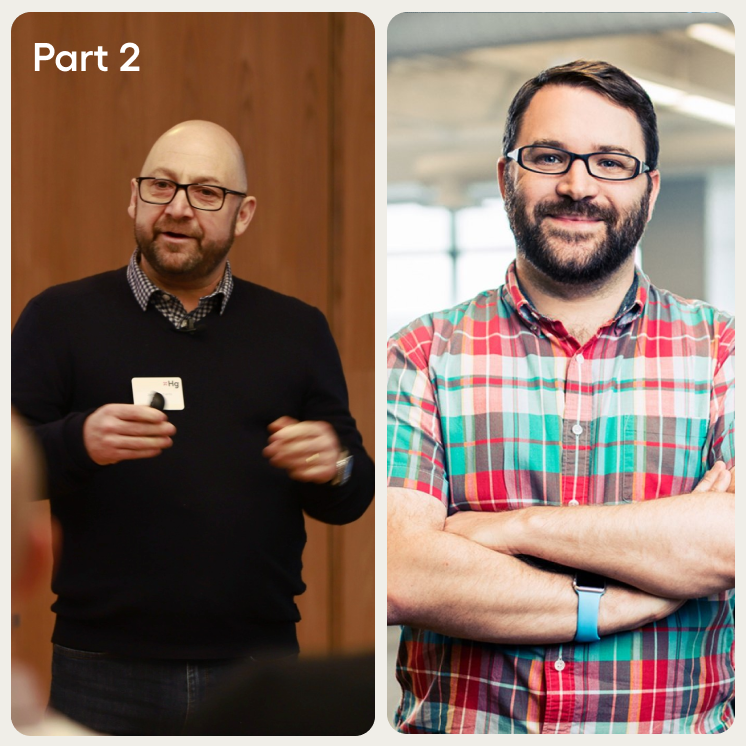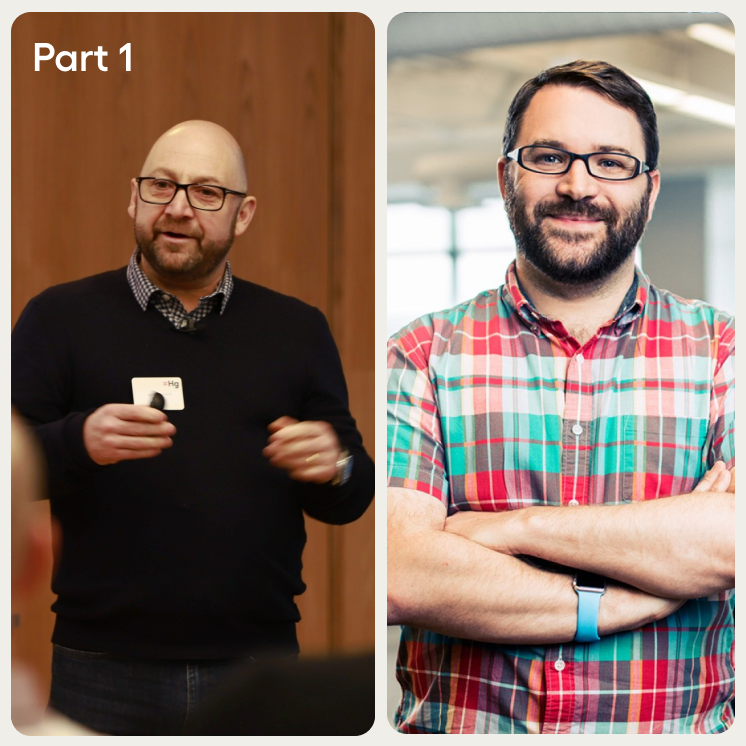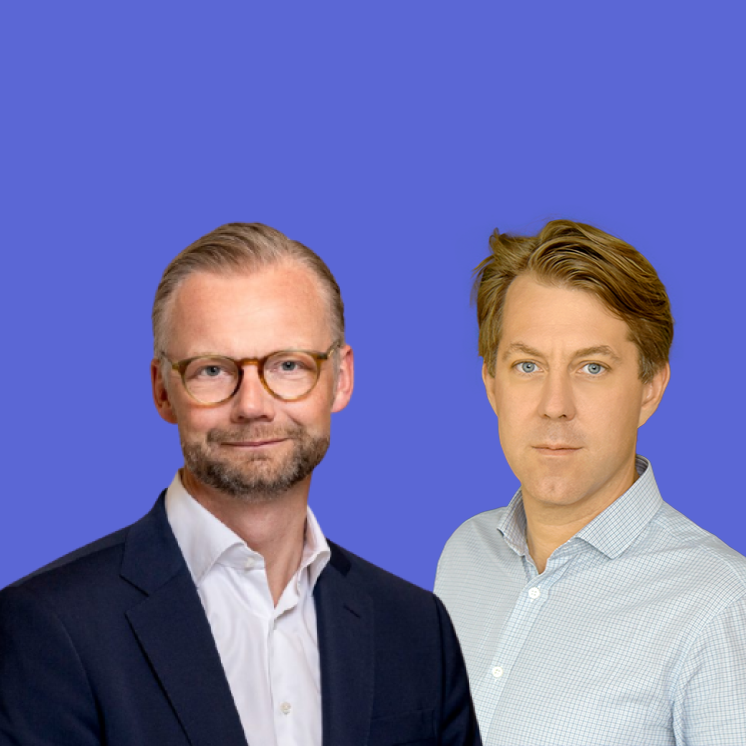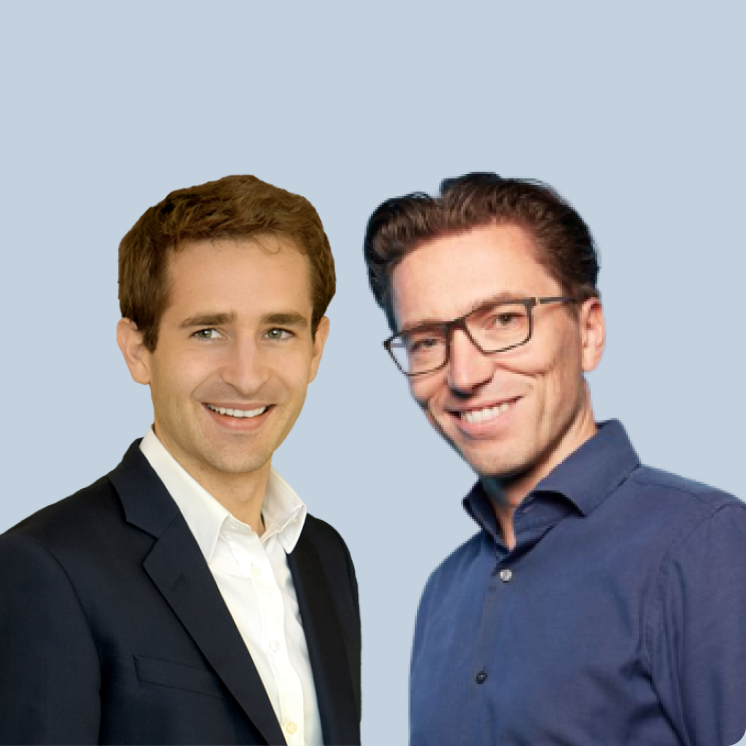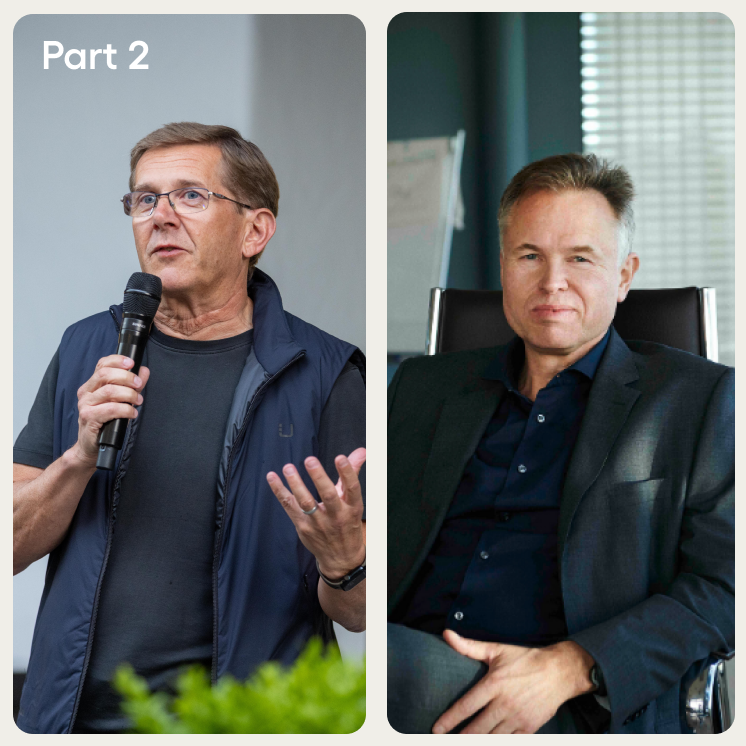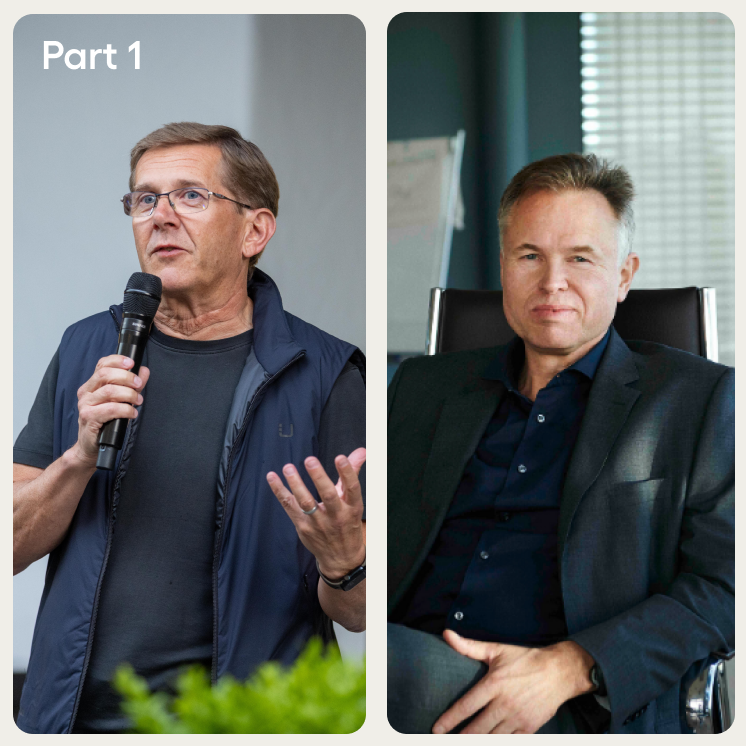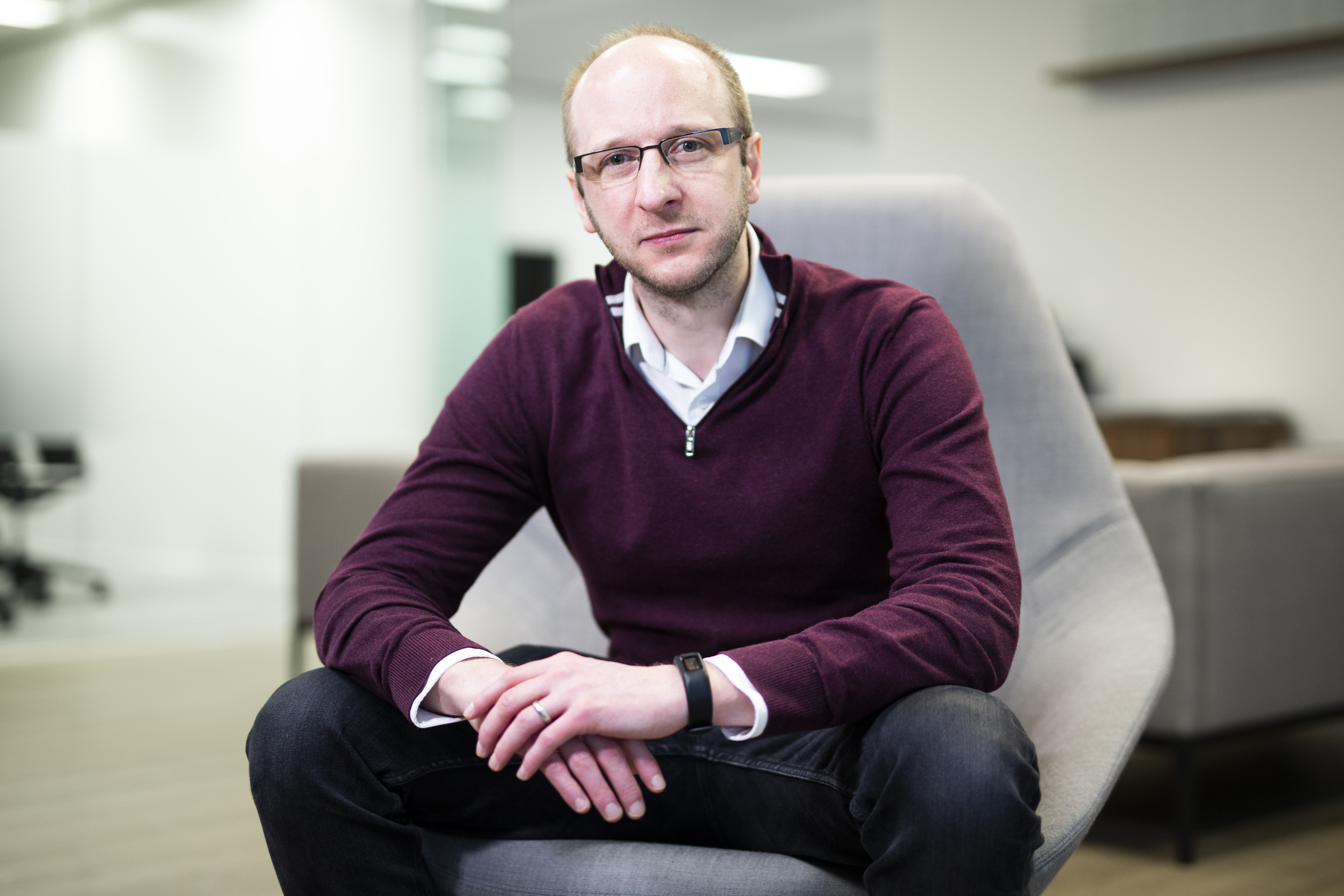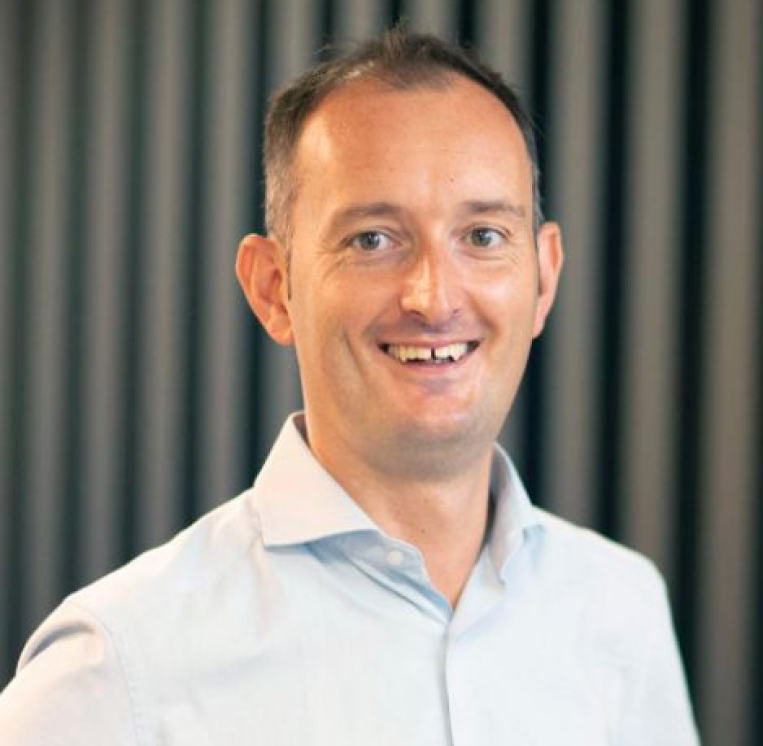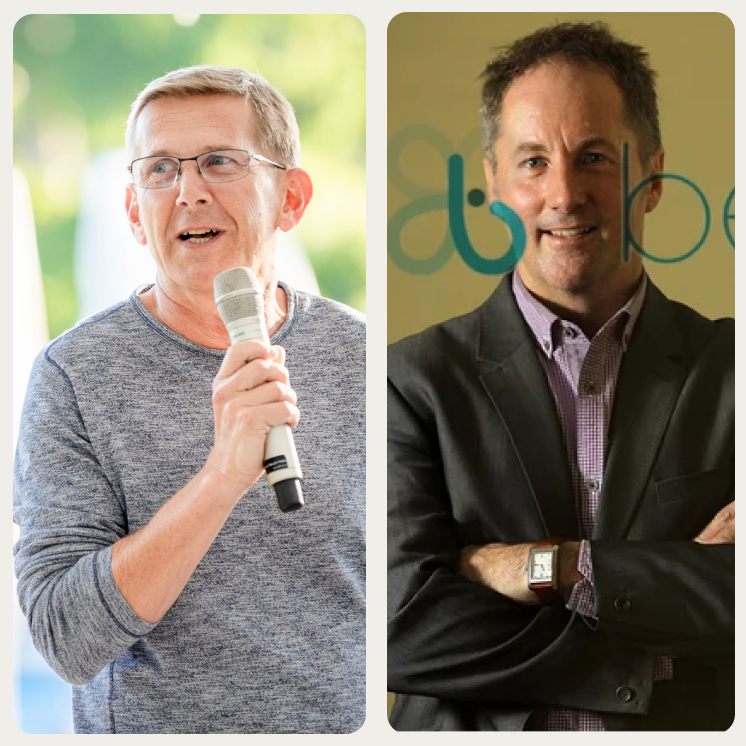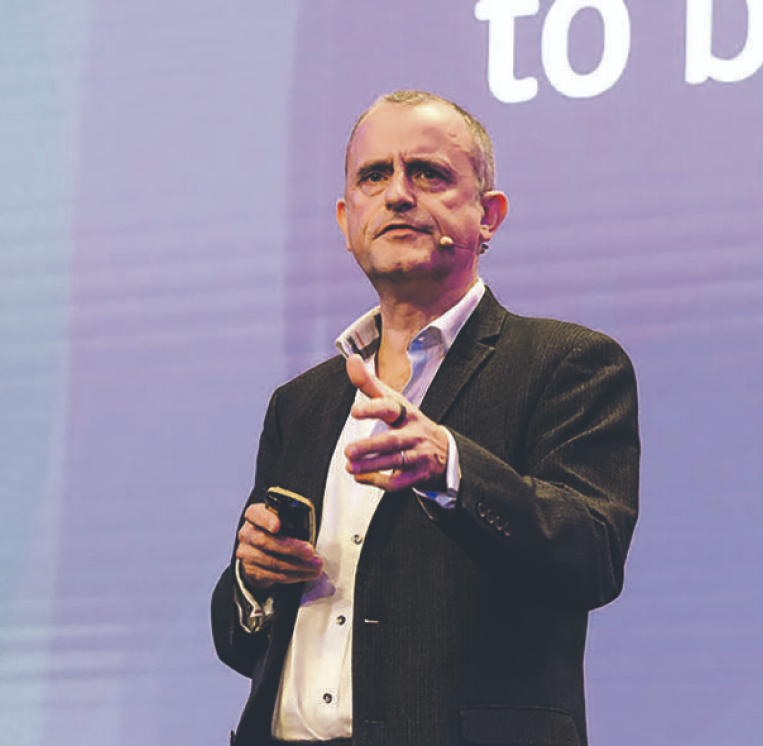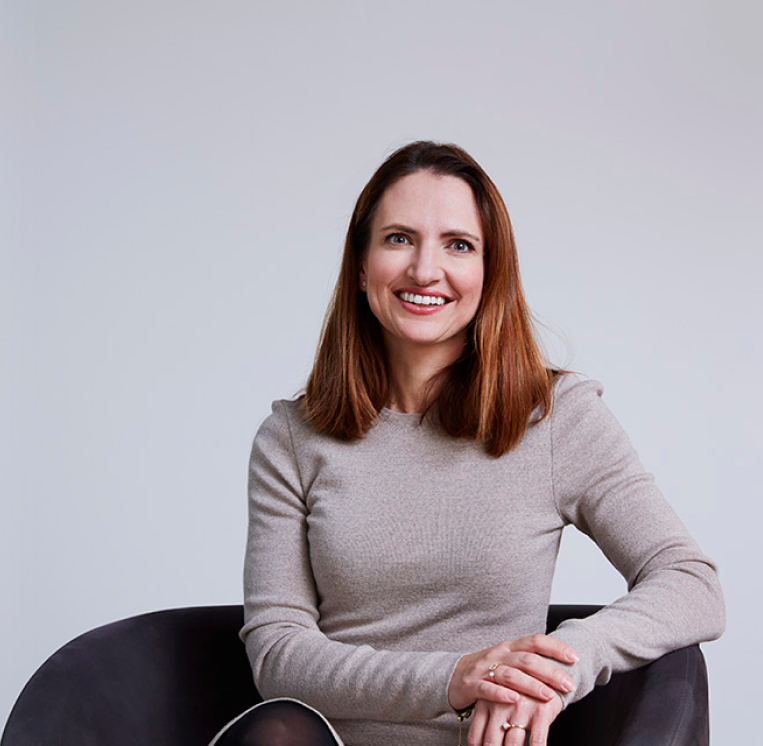Orbit Podcast
Orbit 43
Risk-taking & resilience with Sukhinder Singh-Cassidy, CEO of Xero
Hg’s Joe Jefferies sits down with Sukhinder Singh Cassidy, the CEO of Xero, to unravel the intricacies of leading a global software company and the personal journey that brought her to the helm. With a history of bold moves at tech behemoths like Amazon and Google, Singh Cassidy shares her philosophy on risk-taking, revealing how a series of strategic bets rather than any singular decision shaped her illustrious career.
From a father's entrepreneurial spirit; to navigating a rocky job market post-college on the eve of a tech boom; to Xero's remarkable growth across 180 countries: Singh Cassidy reflects on fostering a culture of inclusivity and the importance of authenticity in leadership all whilst thriving on the continuous pursuit of impactful risk-taking.
Listen on:
Episode Transcript
Joe Jefferies
Welcome to Orbit, the Hg podcast series where we talk to leaders from across the tech ecosystem to hear how they've built and scaled some of the most successful software companies globally. I'm Joe Jefferies, a director in our Saturn Funder Hg, and I'm delighted to be joined today by Sukhinder Singh Cassidy, the CEO of Xero. So firstly, Sukhinder, thanks very much for taking the time to join me today. It's great to see you.
Sukhinder Singh Cassidy
Yeah, you as well. Looking forward to it.
Joe Jefferies
If we jump right in, I mean, you are the CEO of Xero. It's a business that I think many, many of our listeners will know, and one that we've got huge admiration for, and respect for at Hg. We touch your business a lot of ways through our tax and accounting, investments at one of our key clusters, probably the oldest cluster that we've been investing out of for 20 years now. We're often partners with you. We sometimes compete with you as well, but in case anyone's in any doubt, do you want to give a quick overview of Xero, and I guess particularly the business that it's become today?
Sukhinder Singh Cassidy
Xero serves about 4 million small businesses worldwide and their advisors, as a cloud native accounting pioneer, which now offers a variety of services to, as I noted, small businesses, and the accounts and bookkeepers who serve them, and increasingly are able to support other advisors as well. When you think about that business from a financial perspective, Joe, it's almost 2 billion New Zealand dollars. The company was founded out of New Zealand, but now operates in 180 different countries, and we will talk about our large markets in a moment. So we're just over about a billion USD at our last annual results, and growing nicely. So, last year we grew north of 20%, were profitable. We hit about rule of 41, I believe, and as you pointed out, turned profitable on a consistent basis within the last 18 months.
But most importantly, and I think this is the heart of Xero, as we noted, we've grown in the Southern Hemisphere. So, Australia, New Zealand are two large markets for us. The UK is a very large market. The US is a large and strategic market. We also have operations in multiple other countries, Canada, South Africa, Singapore, and then we serve the rest of our countries through a digital only product that you can get, and use for your online bookkeeping needs. And lastly, we're very proudly mission driven. The company wakes up every day, I think, thinking about how to serve its customers well, how to be a good player in the markets in which we operate, how to be an open and inclusive workplace, how to sort of mirror what we want to be in the world with how we operate in the world, and that's really, really important to us.
Joe Jefferies
That's great. And if we switch the focus to you, I guess to start, so obviously you're the CEO of Xero. I think your two-year anniversary is coming up very soon, isn't it?
Sukhinder Singh Cassidy
It is, right around November.
Joe Jefferies
Is my research telling me? Yeah. But I guess prior to your time at Xero, you've had a really varied career. So, you've obviously been a senior exec for a long time across a number of businesses. You've been a founder, a board member, a serial CEO as well, and you've done that at some of the biggest, most prestigious tech firms globally. So Amazon, Google, all of the names that jump out. You've obviously held those roles at smaller firms as well. And I guess to get us going, do you want to give a potted history of your career to date? And I guess in particular, the bits it would be good to bring out are whether there's a pattern or a play to your career and your successes, and sort of what your journey's been, and how you've thought through that.
Sukhinder Singh Cassidy
So I think you pointed it out, that maybe I'm a bit of an odd duck, which is I've been a founder three times, and I've been a CEO three times including... And also senior executive. I think the through line is building for sure. For sure, for sure, for sure. I love to build, and I've had the opportunity to build a different scale, from a zero to 20 journey. Yes, I've done that journey. At Google, I inherited a business. Our Asia, Pacific and Latin America business was about 60 million. Yes, I've done the 60 million to several billion journey. And then at StubHub, where I obviously led the business through our acquisition, and then at Xero of course, I've been able to inherit something that is worth billions, and try and think about growing it further. But the through line is I love to build.I think when I describe myself to others, I think I say I have the heart of a founder. I care too personally about everything. But I have had a good degree of, I'd say executive rigor beat into me. Places like Google, where I grew up, and obviously built a big business, and obviously being in the boardroom gives you another view of being an executive and professional. So I have just enough 360 feedback to realize I'm not omnipotent, and to realize I need to behave myself, and try and do better every day in how I show up for the people I work for, and with, whether it's employees, or customers, shareholders, what have you. But the through line is I love to build, and I guess I'm not afraid to take a little risk in order to do it.
Joe Jefferies
So the building point's really interesting, because to have operated sort of up and down the size scale, and to have moved through that up and down actually over time, I think is pretty unique actually. And so, you sort of touch on it there. One of the other key themes I think I've picked up in our interactions, and you've certainly talked about publicly before, is that your career has been defined by, you call it building, there's also risk-taking inherent in that as well. So, it'd be great to understand how you think about risk-taking in the context of your career, and what that sort of means to you, I guess.
Sukhinder Singh Cassidy
Yeah. Well, I mean you know uniquely, this is something I care really deeply about, not just for myself, but for others. In fact, I took a year and a half off after StubHub to write a book about it. So it tells you how deeply I believe in it. Well, look, I'll tell you what I believe about my own career, but of course you only go through it, and realize in hindsight, and then when people ask you, "Why are you successful?" Blah, blah, blah, blah, blah. You're like, "Wait, it may not be what you think." So in a nutshell, and this is no surprise to any of you who manage money, like everything, risks are a portfolio of bets, and if you think about a portfolio, I call trying to pick once, and do it incredibly well, I call that waiting for serendipity and luck.
But I think, and you know this, you're an investor, you build a portfolio of bets, and they have different risk profiles, right? Makes sense, right? Low return, high return, highly speculative, highly stable. If you want to produce over time a portfolio of outstanding returns, you have different risks that you take. Makes sense. Nobody thinks about their career that way. But in fact, if you bridge it all together looking back, and I've done that obviously, and when you're in it, you don't realize it. Yeah, I've taken different sized bets, and the correlation is probably the overall number of bets, rather than any singular bet. And I always give people examples, you think being a founder, like my God, if I'm a founder and my company's successful, okay, that's already high risk. Well, I'm going to make all the money on the planet, particularly when you're young. My first company, you and I both know it's Yodlee, very successful. It's a FinTech pioneer. It is still used today. In fact, Yodlee, and companies like it that provide data aggregation are actually driving a lot of the FinTech apps we use.
But if you asked how much of my wealth was created at Yodlee, I mean I made, for five years of gut-wrenching work, I made maybe $200,000. But it is one of the shining achievements of my career, and it laid the path for me to get a job offer at Google. And by the way, I joined Google at 1,000 people, and it was profitable, and it was six months away from going public. Is that a high-risk move? It's a very low-risk move, right? Financially, very low-risk. Yet of course, Google, I would say was a huge success in my career, and financially, impact-wise, career-wise, right? And so if you judge me on Google, you'd be like, "Wow, what a brilliant choice." I'm like, "No, no. Do you know how many choices I made before Google that got me to that point?"
So my point is that sometimes big risks correlate to big returns. Sometimes big risks, if they're really speculative, correlate to no returns, or low returns. Sometimes small risks overperform. So mostly, as I've looked at my career and made sense of it, I realize I am a risk-taker. That's not obvious when you're going through it. But I also have seen the correlation, and the only thing I say to myself is, "Look, I've made a series of decisions, and some paid out in different ways." And I don't mean financial, I mean career-wise. What led to the next opportunity, that led to the next opportunity that, was the one that unlocked?
You don't quite know. So, all you do is you try and be a smart risk-taker, and you aim for impact every time. Every time. And sometimes you're going to get the impact you want, and sometimes you're not. And sometimes that's because of your efforts, and sometimes quite frankly, Joe, it's because of the environment, and then how you respond to it, or where you're situated. But you want to put yourself in the best position to keep having impact, to keep learning, and yeah, to be a smart risk-taker. So, I don't know, that's how I think about it.
Joe Jefferies
Because you've been that way for so long, it's easy to sit there and say, "Well, every exec must be like that, and that just must be the way the world works." And I'm not sure it is, at least to the degree to which it's impacted your life and your career over the period. So, I guess a question for you is where does that come from? Is that something you learned in the early years of your career? Is that something that goes back to childhood? When do you think that all sort of started?
Sukhinder Singh Cassidy
Well, maybe there are three things in my career, three moments that I'll point out, some corporate, some personal, that maybe informed that risk taking kind of mentality. And to your point, I only describe it now. You can package it all up, and put it in a pithy remark to someone like you. But when you're going through it, first of all, my dad was a small business owner. He was, and I wouldn't call him a risk-taker, but I would call him growth... With a huge growth mindset and very innovative. So he loved running small business. By the way, the small business was not particularly risky. He was a doctor. Okay? So he certainly taught me love of business. You know well, that I tell the story that I did his bookkeeping, and taxes.
Joe Jefferies
Yeah.
Sukhinder Singh Cassidy
He had his... All three daughters do it. No accountant in sight, no Xero software, just a good old-fashioned ledger, and writing in numbers and columns. So he taught me to love business, okay, number one. But when I was at home and I saw him as a doctor, and working hard every day, okay, that's pretty stable profession. I saw what he made. And then I'd watch him call his broker, and he loved it. He'd call his broker every day and he'd go like, "Tom, what stocks are we going to buy today?" And my father was in... He was a late father. He was in his 70s, and by the time I was in college, but I'd listened to him call and buy stocks. And I remember distinctly, far before I was in tech, my father calling up his broker friend to buy AOL, and he'd get off the phone and he was so excited about building his own portfolio of stocks.
So, I saw him in a very stable career, yet... And I saw how much my parents saved. They were very thrifty. So, you wouldn't say that's a risky person. But then I would see him, I would see him take bets in his stock portfolio. I'd see him buy tech, which is amazing. I saw all his vision for his... He often thought that... I'm sorry to go wax lyrical about it, but I think it's a really important point. He was not just a doctor, but he really imagined he should open a walk-in clinic. And so, he branded it. And quite frankly, he was right. He was wrong on the timing, but he was right. My father was thinking about 24/7 walk-in clinics when he was in the 1980s. Joe, how big is that thesis today? That was my dad's vision. It never materialized. But he was a dreamer, right? So that's very seminal for me. I remember even his own kind of approach to business, and risk taking, from the creative to the very stable. That's one.
Number two, when I was in college, I had a brutal time getting a job. When I say brutal, I mean brutal. I went to an undergraduate business school in Canada, and all of my classmates, man, they were getting the plum jobs at McKinsey, and Morgan Stanley, and Bain, and Monitor Consulting, and Goldman. And so I thought, "Well, I should get one of those jobs too. Certainly will be easy for me." And I would apply and get interviews, and I just wouldn't get the job. And so, my friends all graduated college, and I had no job. They were going off to Toronto, and New York, and I took the same summer job I'd had the year before, selling hotel space, conference rooms in London, Ontario, Canada.
And I hid, I was depressed. I was like, "Oh my God, I must not be as good as I thought I was." And I decided to go through recruiting again, with the undergraduate class after me, because I knew all those same firms would come to campus. So I thought, okay, I'm going to try, take a second go around. Take a second go around, nada. Nothing happens. Okay? I'm getting the interviews, I'm not getting the job. And so, I apply on the job boards for an MBA job. I'm an undergrad. I'm 21 years old, but of course our business school had undergrad, and graduate business school. And so I apply for an MBA job with a private equity firm. You'll appreciate this one. And it ends up being the ClearRidge Capital. They run the Bronfman money in Canada. I'm 21 years old. I don't know what the Bronfmans are.
But I applied for this job. I'm so depressed. And a few days later I get a call from Montreal, and they're like, "We'd like to invite you to interview, fly up and interview for this job." Now, this is a job I'm not qualified for. Zero. I've been able to get none of the jobs for which I am qualified. So, I fly up to Montreal, and I do a first interview, and I ask the partner, I'm like, "Can I just ask, at the end of it, if it goes well," I said, "Why did I get the interview?" He's like, "Well, you called and left a voicemail after you applied, and I really liked what you had to say on the phone." And then I go through a six-week interview process, and you're going to think I get the job. I don't. Okay. But I go all the way to the very end. I do case interviews, whatever, and an MBA ultimately gets a job. But that small risk gave me all the hope in the world that perhaps I was qualified.
And so I kept going, and I literally... It's because I took that little risk, and somebody called me back, and restored my faith that I was probably not an idiot. And in fact, if I was qualified enough to compete for an MBA job, I certainly was smart enough to get an undergrad job. And I kept going. And for, I think, maybe it was four months later, something serendipitous happened also with Merrill Lynch that never came to Canada. I applied, I went down in New York for an informational interview that turned into a four-hour interview, that turned into a final round interview, that turned into an offer. And I got my iBanking job a year and a half after all of my peers. But if you say what led to it, I'd say it was a bunch of little risk-taking for sure, and then one little risk that paid out, even though I failed, it paid out because I stayed in.
And so, think about how seminal that is for my mindset. And then the last example, and then I'll shut up on this topic. You can tell I care a lot about it, is I ended up at Google and Google, look, Google's doing really well, but in my time there, everybody wanted to take lots of risks. And at some point Eric Schmidt was like, "Man, I don't even know what all our engineers are working on." So at the corporate level, Google came up with 70-20-10. It's a framework that I use in all the companies I go to. We can't afford to allocate resources quite like Google does, but Eric basically gathered up all the engineers to figure out what they're working on, and then created a simple framework for the company.
It's like, "Look, man, we have people launching stuff all over the place, but search is still growing it some ridiculous number. So we're putting 70% of our resources, roughly speaking in core search, we're putting 20% in the adjacent areas around search." And at that time, I was working on launching Google Local and Maps, that was an adjacent bet. Video search, before we bought YouTube, shopping. These are all adjacent to search, but you can see the data, that there is value here and then 10% on moonshots, like whatever we want. And that framework internally helped Google place a portfolio of bets all at the same time. And I use that framework wherever I go. I'm like, "Guys, it may not be 70-20-10, it might be like 85-10-5, because that's all we can afford. Maybe it's 90-10 for a year, and there is no moonshots. But I like training people to think about portfolios of bets, little risks with big risks. It's okay. So, those are the three maybe seminal things that have informed them, and some two very personal, and one kind of very professional.
Joe Jefferies
What resonates there is, I love the way you sort of talk about taking those risks, but those risks don't always pay off.
Sukhinder Singh Cassidy
They don't.
Joe Jefferies
So there are micro-failures, some bigger failures within that.
Sukhinder Singh Cassidy
Yeah. Absolutely.
Joe Jefferies
But you've had the sort of resilience to then move on, make the most out of it, know what that can enable you to do better next time, and push through it. Am I interpreting that the right way? Is that sort of where the motivation comes from?
Sukhinder Singh Cassidy
Yeah, for sure. But keep in mind, I also believe that resilience, it's an earned badge. When you're going through it, it's not resilience. You're just hanging on. I mean, it's like anything, right? When you go through the failure, anybody who's like, "Oh, I'm resilient." It's like, no, no, you're just doing just barely enough to stay in the game while you're nursing your wounds on your failure, and just don't exit. Just don't exit. Just hang on. And yes, one day that is called resilience. And one day for sure, it enables you to take more risk and bets, and I'm not afraid if something's going to fail at Xero, but I also know we're a public company, so we need to have a stable of bets. We need to know what we're going to do to deliver the core performance. Yes, that's true.
And yes, in parallel, we need to be thinking about the next horizon. And yes, it's true, we need to put room to do things that might be speculative, no longer that speculative, but Gen AI would've been in that category, right? Yeah, that's all true. So, I think resilience is the outcome, not the input. Most people would probably realize that they look at their own life's like, nobody's like, "I'm being resilient." It's mostly like, gosh, just don't exit. Just hang on. So I say to people, hang on, nurse your wounds, just don't go anywhere. Okay? Just try and make it through, and one day you'll have a lot of resilience.
Joe Jefferies
That resilience point sort of runs through... It runs through a lot of what I... I mean, I've heard you talk about it. I've read a lot about you talking about it as well. And so, one of the points I would say is pretty differentiated by you Sukhinder, you talk a lot about some of the career failures that you've had. So, I know we've talked about the early days there, but you've talked about-
Sukhinder Singh Cassidy
Yeah. Yeah. For sure, Polyvore, my first CEO job.
Joe Jefferies
Some of those incidents as well.
Sukhinder Singh Cassidy
Yes, of course. Yeah.
Joe Jefferies
How do you see... So obviously there's the ability to process that, use it to benefit you, in your subsequent career steps. I sort of understand that. Do you see a benefit, or a power to being able to have that communication with your team as well? How does that impact you as CEO of Xero, for example?
Sukhinder Singh Cassidy
I think the vast majority of people move through life afraid to look imperfect. And I think when you can share your own failures, and you know this, talk about the things that don't work, I hope what I'm doing is releasing from other people the sense that greatness is perfection. It's not. You and I both know that. You've had enough businesses, and you yourself, I'm sure, have a view on what makes a strong performer, but I'm sure it's not perfection. I'm sure in that scheme of words you'd used to describe somebody who you think of as a high performer would be agility. It'd be ability to adapt. It would be yes, ability to pivot when something's not working. These are the common phrases we both use to describe some of the strongest performers.
But I think people are so afraid to look like they don't know something, that they're weak, that they don't know the precise answer. And mostly, I just want to say to people like, "Hey, I'm going to tell you some things that haven't worked for me." There's always volatility in the outcome. You cannot precisely control the outcome. Some things you can, some things you can't. So, acknowledge it, and just tell me how you're thinking about it and what you're going to do, and what you're attempting to do, and stretch for it. And if I know you're stretching to have impact, then I understand you can control the absolute result, but I know that you've thought about it five different ways, and we're going to go for it.
So I do hope that when I talk to our employees about whether it's Polyvore... I'm happy to talk about personal failure. It's amazing to me. I do an AMA with our employees, and once a quarter, I did one last night with two yesterday with new starters, and I do have a Slack channel. It is amazing to me how much people want to talk about those things. Sometimes I think, "Isn't it boring?" Probably, aren't you over talking about my career already? Honestly.
But what I've found interesting is I think people are looking for tips to be successful, and to thrive. And sometimes what you wanted to do is release them from this sense that they have to be perfect. That is the one thing, if I could give that gift to everybody, I'd say, "You don't need to be perfect. Trust me. Trust me." Quite frankly, authenticity goes a much longer way in getting people, I think, to unlock, and realize like, "Hey, everybody's kind of doing the best they can, and you can't control every outcome, but you can control what you put into it."
Joe Jefferies
One question I've got. If you, particularly given the different scales of businesses that you've led, so multi-billion ARR businesses, through to much smaller startups, at the other end of the spectrum, everything you've just said, how consistent is that across the size range? Do you have to flex your style? Is there a different way of operating? Or actually is it the same skills all the way through?
Sukhinder Singh Cassidy
Okay, what's the same things and what's different? Same thing, authenticity, transparency, the why, repeating the why, communicating the why. There's never enough communicating. I would say the other consistency is I think be in the work with people. And I think even as a CEO, I believe that Xero, you have to be in the work sometimes with folks, to know A, first of all, you're not better. You're just trying to be in it with them, and understand enough of the journey, and be doing yourself. If you're going to ask people to work hard, model hard, work, super simple. If you're going to ask people to be transparent, model transparency. So that stuff is the same. What's different? Well, look, first of all honestly, in a startup, it's much easier to just be in the work, and not worry about... You can spend more time just in the work, and getting it done, because it's small enough that everybody understands what you're trying to do.
So yes, you might repeat it in an all hands, but from there on it's pretty clear. And everything you imagine, the distance between you, and any given employee is so short that not a lot gets lost in translation. So, what happens is you grow your business, of course. Lots of stuff gets lost in translation. So what do you do about that? That's the biggest difference, I think. So much gets lost in translation, and then it's about managing people, to manage people, to manage people, to do the work. So, I think the one thing that you have to learn as an executive is of course, forget delegation. I'm going to give you maybe an opposite tip, which is, of course you have to communicate, of course, you have to write a great strategy paper, but you know what you need to do? You need to find ways to stay close to, and shorten the layers of communication between yourself, and the people who quite frankly are where it all gets delivered.
So, in the case of StubHub, or Xero, pretty early on when I arrived, I basically was like, "I'm creating an extended leadership team. I want to get to know the top 100, 200 leaders in this business, who I know actually every day can drive the outcomes. They should be part of creating the vision. But quite frankly, I don't want to wait for five layers of people to... Because what's going to get lost in translation? So I want to draw them all close and make them feel like a community of leaders who together are going after it. And I want to shorten that distance." So that's the one thing that actually fundamentally changes. A lot of it stays the same.
And then in terms of being in the work, which I tell you as being the same, I often say to executives that the best executives have what I call operating range. They can go up and see the forest, they can come down and into the trees. And sometimes you have to come down, because that's where the problem is, and you have to be in it with your team. If they can't figure out what's going on, you might have to... Need to ask enough questions. You might need to ask to see the work. By the way, if you look at a board deck, you're like, "This is not saying what I want to say." Freaking get in there, write it yourself. If you're counting on, I don't know, some speech writer to say what you want to say to your employees, get out a pen.
So, I'm a believer that you have to... You might say the range might change when you're in a startup, you're like, "Wow, you're literally opening your Xero account. Okay, yes, I will say I am not buying software right now at Xero." But that range still has a massive extensibility. I am often in things that people would be like, "Wow, you're in that as CEO?" I'm like, "Yeah, yeah, yeah. I don't want somebody writing my Slack communications. You know what? I can talk to employees directly just fine. You don't need to articulate myself for me, I can..." There's work I'm going to want to do always, and there's work I need to do always, and I want to be in it with people.
Joe Jefferies
And actually on Xero, so it'd be remiss not to ask you this. You've told me this story before, but I think it's a good one for people to hear. Do you want to walk us through a little bit how the Xero CEO position came to be? So, Steve Vamos, obviously, long time CEO before, very well-known guy. Do you want to give us the story there, Sukhinder? I'd love hearing that.
Sukhinder Singh Cassidy
So look, you know that I... Obviously we sold StubHub, where I was running the company, the US, largest ticketer in the US, or ticket marketplace in the US, and a big player beside Ticketmaster. I decided to write this book on risk taking, because I felt really deeply about this topic, which you know. And then I started my job search, and I was looking and looking, and unfortunately when you're my age, I'm not old, but I'm not young. I'm like somewhere in between, I'll just say. I was pretty picky. I was like, "Look, a bunch of things need to be true for this one. I'm not looking for the job to get the next job, to the next job." That's what I was doing in my thirties. As long as I could see a line to more learning, I take it. Now I was like, "Oh man, I just want the job. I just want the job I love. I don't want the job to the job."
And I basically said, "Look, it needs to have great macro conditions. It needs to have a great business model. It needs to have a customer I can get passionate about, I want to wake up every day and serve, needs to have a culture and value alignment with who I am at my heart, where I feel like I can go to work every day with people who I share values with. Oh, and by the way, the CEO O job needs to be open. Oh and it needs to have really large TAM." So, I'm like, "Oh my God."
Joe Jefferies
It's a long list, then.
Sukhinder Singh Cassidy
That's a long list. Right? So, yes, there were CEO offers coming along, but I would just say almost none of them met the criteria. And about a year and a half in, I think only one other company, I think I seriously was like, "Wow, maybe that's it." And showed at the same time as Xero, but I got the call for Xero in the morning, and I said to my husband, I was like, "I know Xero. I'm a user of Xero. My small tiny startup called theBoardlist, which is where I'm the founder and chairman. I was never the CEO, we use Xero, our accountant put us on it. I think this is it." And Xero invited me, so I knew, I just knew. I was like, "I think I know this one."
And Xero had a XeroCon coming up, which you guys, you know at Hg. XeroCon's our big customer conference. So, had a great conversation with the board, by the way, the board's diverse. And now I'm like, "Okay, check another check. I see women in my first interview on the board. I like this." Lovely people, David Thodey, our board chair is just a lovely human being. And they invite me to XeroCon, which is two weeks later, I fly to Australia in stealth. Nobody knows I'm interviewing for the CEO job. I sit in the audience as Steve Vamos gets up in front of 3000 people and is opening XeroCon, which is a cult-like conference for accountants and bookkeepers, where we express our love and learning to them, and they express their love for Xero. It's amazing. It's like, think of it as, I don't know, like a mini-TED for accountants.
Joe Jefferies
That's a very good description, actually. Yeah.
Sukhinder Singh Cassidy
Yeah. And I'm in the audience, I'm like, "This is amazing. I see the culture at work, I see the customers, see the brand." I fly back and I'm like, "Oh my goodness, this is amazing." And from there it went very fast. Luckily the board felt the same way about me as I felt about the company. And after almost two years of searching, and inside of 60 days I was at Offer stage. And so, it really, like I said, it really is a tremendous brand, with tremendous love from its customers, and it's a great product. And I was a user. I was a user. And so, you know that whole story, my dad having me do his books at seven or eight years old, I mean the irony is not lost on me, that the job I end up with is maybe making that easier for people 20 years later.
Joe Jefferies
The bit I can see coming in as new CEO into Xero, so that's the XeroCon piece. The evangelical following that you have from accountants and users in all the countries where you operate, but particularly in Southern Hemisphere is really strong. How unique was that as part of the Xero role versus other roles that you've had, knowing that you've got this asset that's almost of... Or business that's almost of national interest that you've got to look after, and protect, but also grow and drive shareholder value from?
Sukhinder Singh Cassidy
Oh, I would say it's incredibly important. I mean, I think that brands that are authentically built with love, yes, to your point, you feel a responsibility. You want to be a steward of that, right? You want to be a good steward. But yeah, you and I both know that actually is part of what creates enduringly great companies. If you're not looking for something transactional... By the way, Joe, I was shown a lot of things that I would say are arbitrage.
Look, I came from e-commerce. I will tell you there... And StubHub was an amazing brand in the time I ran it, known for its customer service, lots of things that people loved... And known for just access to great tickets. But, I grew up in e-commerce for the last 10 years post Google. And there are lots of arbitrage brands, like they're transactional. They're like, "Hey, I can buy a customer at X, and I can sell it at Y." And you're like, "Okay, that's great. I understand it's a great business model. Is it a great company?" We talked about that criteria, right? Both need to be true, if you want to stay, and have a long-term impact, and not just be transactional yourself. And being transactional has never motivated me, ever.
Joe Jefferies
Yeah, yeah, I can see it. What surprised you since joining Xero? What didn't you expect?
Sukhinder Singh Cassidy
A couple of things. I think what surprised me was really not just the customer love, but what Xero is outside in is what it is inside out. If you wander the halls at Xero, I always say, and I say this, but there are no assholes. And I also say, jokingly to our employees, "If there's an at Xero, it's me." Not that I think I'm jerk, but just that I can be grumpy, and difficult, and pushing, and impatient for progress, and finishing people's sentences. I know those things about myself, but quite frankly, I also say those things about myself. So I don't think myself as a jerk either.
But, my point is that the culture attracts. And by the way, I would say we've lots of work we can do still on our hiring, and onboarding processes, but despite not having all of the perfect processes in the world, I'll tell you, we attract really good people. They wake up, they want to do the right thing, they care deeply about the mission. They're by nature, just like their ethos is open to the world, and open to each other. And so, it does surprise me, because sometimes you think like, "Oh, you have to..." Not even engineer on these. "We have to screen for this, and that, and the other." And of course, as I said, we have lots to improve in our processes, but somehow the company just naturally attracts no assholes, and I love that about Xero.
Joe Jefferies
And actually on that point, so one of the other things I think you've managed pretty masterfully actually, from the conversations we've had, and sort of seeing it in the public markets, is you've also made team changes. So, you've hired a bunch of senior execs, most of them North America based. You've got the complexity of a business which is still headquartered in New Zealand. The balance of the employee base, of their time zones clearly an issue as well. How have you managed all of the above with operating across such a big geographical gap?
Sukhinder Singh Cassidy
Well, first of all, I think that people often think that big geographic gap is a challenge. I remind them that I ran Google's, APAC and LATAM business, which is even a wider geographic spread. It went from Brazil to China, from North America, for the entirety of my duration, and that was because it was a very lean team year, and all the headcount was in the regions. And quite frankly, from a time zone perspective, it worked.
The same is true of Xero, as I'm like, you have to remember, I'm like one flight from every one of our big markets, literally. And this is about the only geography where that's true. So, it turns out that actually to run a global business, where its number one market is Australia, and its number two market is the UK, and its number three market is the US in terms of the top three markets that we are focused on, well, gosh, I'm centered in one, and I'm equidistant to the other. And so, weirdly, time zones actually work quite well.
Having said that, I think you pointed to maybe the deeper issue, which is, look, you have this very proud, and rightly proud New Zealand tech company. Xero is New Zealand's tech darling and story, right? As it should be. And then we're trading on the ASX. And we are maybe the leading software player in both markets for what we do. So, if you look at that and you're like, "Wow, well, you have 3000 employees down there, maybe 1200 or 1300 in the Northern Hemisphere. So you still largely... You have that heritage to steward." Right, you want to steward it. But we do have global ambitions. We are a global software company, and we are benchmarking ourselves against the very best SaaS companies in the world, and we aspire to do that.
So look, I think I'm going to come back to something I said very early on. Xero is a really good people, and we have a lot of people in a lot of countries, and what bridges this together already, very diverse styles, and we'll talk about some of those challenges, but underlying value system, the same. And so I think while it has been undoubtedly a culture shift for Xero's, I think to underplay that would be really stupid, actually, I think that as new leaders have come in, I think they're like, "Ah." A lot of respect for the skills and experiences they bring. Because as I said, Xero is a place that respects the diversity of experiences, and I'm thinking like this person is just in another person with amazing skills, and the same values. Yes, they may sit in a different country, but I can see why they're here.
Remember, I said there's something about our culture where we hire kind of... Really, I don't know any other way to describe, I think good people. Like you wake up and you're like, "Oh, that's a good person. There's another one. Those are just really good people." So, I think there was an underlying value share that we have. Now, the diversity of styles is certainly an issue. Those of us who live in Silicon Valley, we like more bold, and ambitious language. I rewrote my XeroCon Nashville speech. I was like, "This is a little too subtle." They might think we're banging things on the head. But overall, I would just say a lot of respect for what Xero has built, and the culture we have, and the values we have, and those values are crossing boundaries, and we are counting on that, quite frankly, as we build, bring Northern Hemisphere executives, and other things, we are counting on that value bridge, as we should.
Joe Jefferies
We've obviously covered a bunch of your career to date, touched on Xero, and the sort seminal role that you've had there for the last couple of years. If you sort of look back to when you first started out, what bits of advice would you have, taking that first role on at Amazon, back in the day?
Sukhinder Singh Cassidy
As I told you, I did an AMA with New Starters yesterday, and so they asked me this question, so I have a good pithy answer. But, I mean, my first two are very obvious, I think one. Is work hard, work harder than the next person. Just you can say it doesn't matter. Of course it matters. The effort you put into something, people notice. Your willingness to just work hard, people notice. So that's an obvious one.
Number two, work for great people. People are like, "What do you mean by great people?" I'm like, "Well, great people don't mean easy people, they just mean people where you think you can learn something, and you think you're going to learn at an accelerated rate." So, if you are attracted to somebody's track record, or what they've accomplished, early in your career, particularly who you choose to work for, I mean, it always matters. It matters to me even now, but early on, you're in the microcosm of working with that person, and the opportunity they give you. So, that doesn't mean they're easy to work with. Just means that you can learn a lot. So, put yourself in a journey where you get to work with great people. Just the proximity, you'll learn a lot. That one's obvious too.
The third one that's less obvious, and I say to people all the time, "Wade into the mess." Many people do not want to take on problematic areas. They don't want to be in something messy. And I'm like, "Well, mess is where the impact is. Mess is where you say, 'I could just say that's not my problem, but somebody needs to figure it out.'" And look, when you're junior, a mess might simply be like, "Man, I am on a part of this project. I don't think it's going that well. Should I ask my boss if we should organize a meeting and talk through what's... Should I note it to somebody? Should I take a little risk to just be like, 'I can see this thing is going off the rails, or this is a problem.'"
Voice it. Be a part of building the solution. You can just say, "It's not my problem. My part looks really good." Yeah, that's going to get you so far. But I always say, if you want to go far, wade into the mess. I'll tell you what, when it comes to looking for the person, looking for the leader, offering the job that you didn't expect to get the call for, it's because somebody somewhere said, "That person worked really hard, had impact, and they waded into the mess to do it."
Joe Jefferies
It goes back to your taking risks point earlier as well. You can see the thread.
Sukhinder Singh Cassidy
Yeah, exactly. I'm like, "Yeah, it's called taking a little risk." And so, look, there are people from outside in, I'm telling you, you look at them and you think, "Oh, they have the perfect career. Wow, how did they orchestrate that?" Blah, blah, blah. I guarantee if you go underneath it, you're going to find some of these same themes. They took a little risk, they took a lateral move, they took the unexpected job assignment, they took something hard. They worked for somebody who saw potential in them, but who was a really hard boss. These themes, they show up again and again. So, just don't stress yourself when you look at other people outside and be like, "Man, it looks so perfect." Inside out, it never is. It just never is. So, trust in the mess, trust in taking a little risk.
Joe Jefferies
So, the final topic I wanted to ask you about is... I mean it's another big topic you've talked about a lot in the past, which is I guess gender diversity, but particularly women in tech, and I know it's something you care passionately about, and so do we at Hg, candidly. So, I guess, what's your perspective on where we've gotten to today, and how you've seen progress evolve over your career, in particular?
Sukhinder Singh Cassidy
I have the benefit... LeanIn and McKinsey just put out a report on the state of women in the workplace, which is tech and non-tech, but maybe one of the broadest studies. So, I've talked about it last week at the Commonwealth Club with the co-founder of the report. So, Sheryl Sandberg is one, a woman named Alexis who's a partner at McKinsey also co-founded on behalf of McKinsey. So, I have some data too, which is more helpful than just my opinions.
So, what's gotten better, women in the C-suite is progress, tech, non-tech. I think according to the McKinsey report, women in the C-suite is 17%, we're now 29%. So, clear progress. Women in C-suite, women in boardrooms. I've obviously personally been involved in that, in kind of building theBoardlist as a platform for diverse board membership. So I think that there's no longer a debate about the need for diversity in executive rooms, and boardrooms in order to drive better performance and meaningful progress.
Now, the caveat to that is the McKinsey report would tell you that a lot of that is by adding another seat to the executive table, and it's often a staff role. A staff role is not very often a path to the C-suite. So one of the things I'm proud of, for example, at Xero, we have three women in line roles who are theoretical successors to me, right? CFO, CRO, CPTO. Those are the three most highly commercial roles in the company. Theoretically, any one of them could one day be in my job, or the job somewhere else. So the challenge I would say for people who have women in C-suite, hey, you've got to look at line opportunities. If you really want to create more women capable of holding the top job, they have to also have the many of the media roles. And of course staff roles are amazing, but they're often more easy to fill with women. That's one.
The second piece is, the report points to, which was a surprise to me. We often talk about women dropping out at the middle of their careers, and I face that challenge. I didn't drop out, but I was a young mother. I had to negotiate at home, and at work to actually stay in the international job when I was pregnant with my first child. Literally negotiate a set of ways to make it possible. And Google was very accommodating, and my husband was also. But I've often thought that that's the issue. The report says actually the issue was, believe it or not, and this was surprising to me, first rung, the broken rung is the first management job. For every 100 men that get the first managerial opportunity, only 79% of women do. Think about how shocking that is, and that sets the path all away.
So that data was a bit surprising to me, because you would think coming in, graduation rates give or take are relatively equal, companies... Entry rates of women into the workforce are relatively speaking more equal. But at the first manager job, Joe, nobody has the experience. So, why are men getting the call more often than women? And women cite in that study, ageism to the young side, being perceived as too young for the job. The irony of course is women my age say in tech, "They look too old for the job." The irony is you're too young, too old, it's like Goldilocks. So, I think that is one of the issues.
And then the last issue, which I have to point to because you're an investor, is women... Funding going to women, and women investors. Those numbers remain paltry. Paltry, paltry, paltry. In fact, there's a bit, I think, of a backslide. So, on an absolute basis, why the more female founders maybe than ever are running unicorns. Amazing. I've seen a whole generation of female unicorn founders like Katrina Lake at Stitch Fix. The reality is I don't think that any more real dollars are going to women, female founded teams. And often, sometimes the way they get the money is by getting a male. So then it's like a female founded team. So that's one issue.
And then lastly, I mean, you know better than I, how many women are in private equity, controlling the dispersion of dollars? And so, women investors are also at a really low rate. And when we see more women investors, we do see more balance in the representation of companies that get money. So, look, not so excited about funding stats. Pleased with progress in the C-suite, though you need more line roles, and surprised by the broken rung issue. But, that's an area of work. So for all of you running companies, and go look at the first manager stats, and ask yourself, when there is no history of managerial experience, why it is that women are getting less of the call than men, and fix it. I'm going to look at that data for Xero, quite candidly. It was a surprise to me.
Joe Jefferies
Yeah, I was going to say, I'm guessing at Xero, I mean, I think the women do outnumber the men, don't they? Around the Xero management?
Sukhinder Singh Cassidy
Oh, they do at the C-suite. Yes.
Joe Jefferies
Yeah.
Sukhinder Singh Cassidy
We're five to three.
Joe Jefferies
Yeah.
Sukhinder Singh Cassidy
But look, to be fair, we have a CFO. Our CFO just announced her transition, so we have one role open and we'll see where that lands. But look, we're happy to have a diverse board, and a diverse C-suite. But even for us, there's lots of work to do. We have gender targets, and underrepresented targets that are ambitious. So, believe me, our work is not done. I'm not sitting here on some preaching podium. I'm just telling you what I'm learning, and hearing, and thinking about for us as well.
Joe Jefferies
Thank you very much, Sukhinder. It's been great talking to you today. Really appreciate you taking the time.
Sukhinder Singh Cassidy
You as well. Thanks for having me.
Orbit episodes
Orbit Podcast
A certain level of chaos is healthy: Franz Faerber on fighting bureaucracy and the importance of deep domain knowledge in AI
Episode detailsOrbit Podcast
The corporate immune system: Google Cloud's Daniël Rood on building Europe's first AI team
Episode detailsOrbit Podcast
Skin in the game: Professor Neil Lawrence on vulnerability, accountability and why the next generation will thrive.
Episode detailsOrbit Podcast
The 3 speed problem: Oji Udezue on CPO leadership in the age of unlimited engineering
Episode detailsOrbit Podcast
Fevered determination: Building Zalos from zero to enterprise in 5 weeks
Episode detailsOrbit Podcast
Trust, velocity, and building the Answer Engine: Dmitry Shevelenko of Perplexity speaks to Farouk Hussein
Episode detailsOrbit Podcast
The long road to the last mile: Nic Humphries and Matthew Brockman reflect on 25 years of Hg
Episode detailsOrbit Podcast
AI, Control Points, and the Next Wave of Vertical SaaS with Tidemark Capital founder, Dave Yuan
Episode detailsOrbit Podcast
A glimpse of the next generation: Zoe Zhao and Annalise Dragic of Azlin Software
Episode detailsOrbit Podcast
The business case for AI: Brent Hayward of Salesforce, David Carmona of Microsoft & Nagraj Kashyap of Touring Capital
Episode detailsOrbit Podcast
Mastering the billion-dollar software playbook: Joe Lonsdale of 8VC & Eric Poirier of Addepar
Episode detailsOrbit Podcast
